International Cuisine in Zagreb: Curry Bowl
August 3, 2020 - Continuing our series on Zagreb’s international food offer and the stories behind these cuisines and businesses. This time, the unique Sri Lankan cuisine offered by Curry Bowl
Spicy eats are best friends with beer, so it's no surprise to find several of the city's international food outlets on Zagreb's popular promenade of pivo, Tkalčićeva. Greek, Turkish and two of the city's Indian food outlets are located here, one of the latter being Curry Bowl. Owned by brothers Clement and Brian Senaratne, who also run the city centre's The Whole Wide World hostel, their small outdoor terrace is the perfect (and only) place to familiarise yourself with the food of the brother's native Sri Lanka. Situated over 1400 kilometres off the coast India, Sri Lankan cuisine is wholly different from anything you'd find on the mainland. Curry Bowl's salads, soups and curries are the perfect introductions to the island's distinct dishes, although for first-time visitors we strongly recommend trying the satisfying kotthu - a dish of chopped vegetables and egg, flavoured with garlic, ginger, lemongrass, curry leaves, spices and with a selection of meats and/or cheese as additional extras
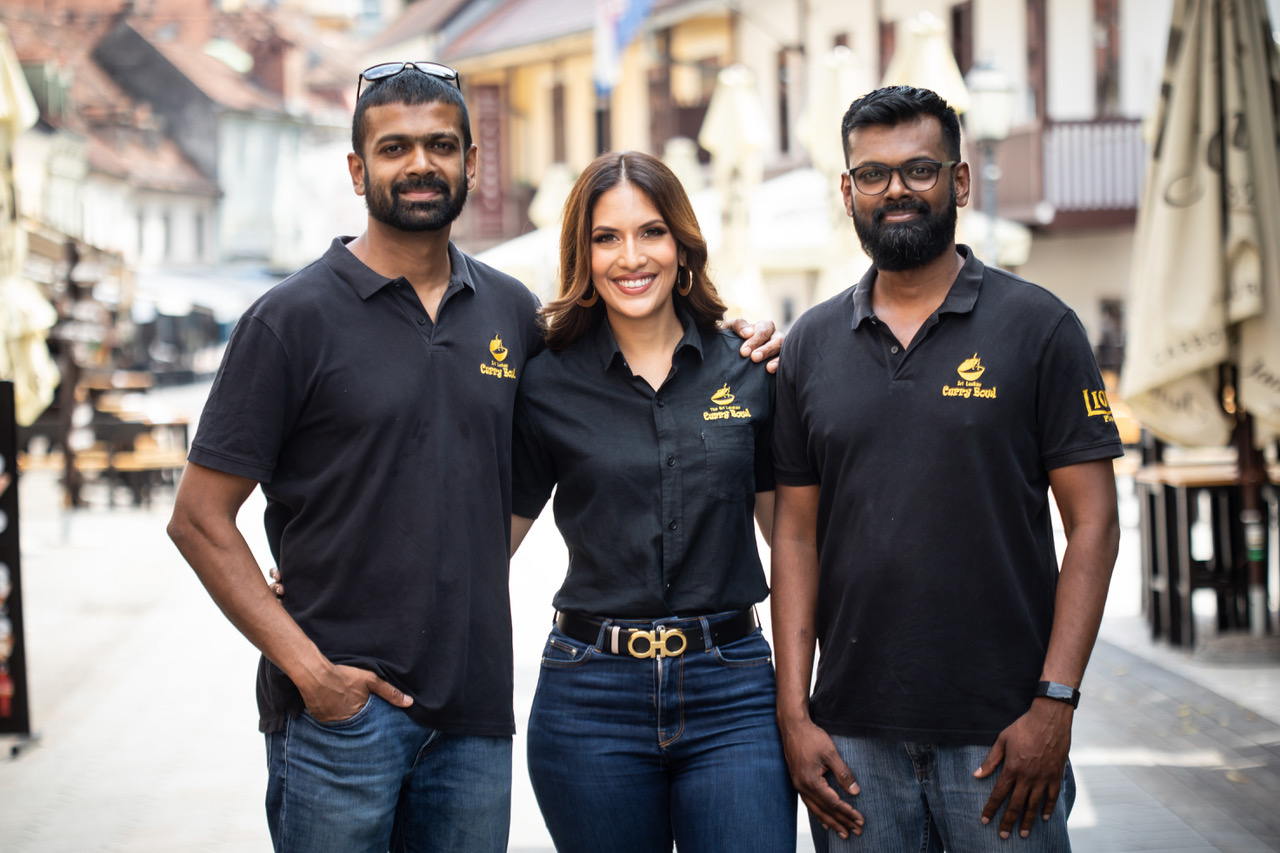 Clement, Tamara and Brian Senaratne © Curry Bowl
Clement, Tamara and Brian Senaratne © Curry Bowl
Brian Senaratne: I came here in 2014 and my brother came to visit me in 2015. We did a trip around Europe together as he was due to marry the next year. We got to Amsterdam and my brother realised how much Zagreb had impressed him, so we came back. That's when the idea of our business was born. We'd been planning a change in our careers, to lose the suit and tie. I spent 13 years working for Microsoft and Clement worked in sales, first in telecommunications, then in insurance.
Clement Senaratne: My visit to Europe was in August, I went back home to get married in October, we came back to Zagreb in November and we opened the business in December.
Brian Senaratne: What we have created here is curry dishes that are comfortable for Europeans. We haven't played around with the flavours, it's still very authentic, but not everything is super hot and spicy. We offer different levels of spice, so you can choose. Moreover, the way the meals are presented is very different. In most parts of Asia, the food is presented to everyone in the middle of the table. We all eat the same and we eat with our hands. Here in Europe, everyone orders what they want to eat individually. And, of course they use a knife and fork. Actually, quite often people ask us if we use chopsticks to eat Sri Lankan food, ha! We don't.
The main difference between Sri Lankan food and food from the rest of India is that we use a lot of coconut. On the mainland, they use a lot of ghee, milk, curds and yoghurt. Dairy products. India is a big place, they have 62 different dialects and the food is just as varied. Our food is more like that from the south of Indian, similar spices, but we are an island. Therefore, the influence of other countries on our cuisine has been minimal. Sri Lankan cuisine has been preserved and is today much the same as it has been for hundreds of years.
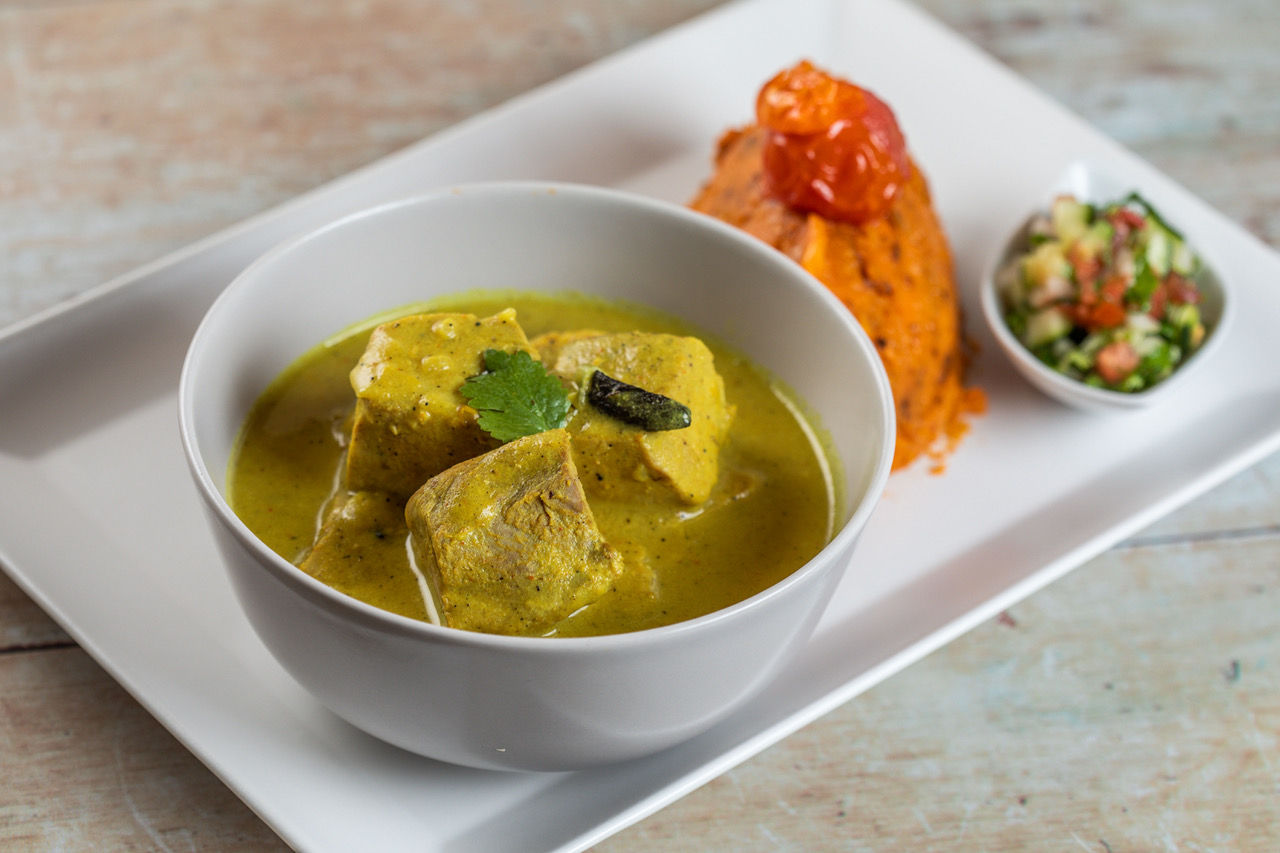
© Curry Bowl
The spicing we use most frequently here is Sri Lankan curry powder. Every region has its own curry powder, its own unique blend of spices. The typical Sri Lankan curry powder has five to seven ingredients. We import two types of curry powder direct from organic producers in Sri Lanka, one for vegetarian dishes, the other for meat dishes. Almost every other ingredient we use here is produced in Croatia. We only import a few very specialised products, such as Sri Lankan Lion beer and King Coconut Water, which is Sri Lanka's favourite refreshment drink. The most popular dish on our menu is Kotthu, which is Sri Lanka's most famous street food. It's a mixture of roti, curry sauce, egg, vegetables and whichever meat you choose.
Clement Senaratne: After the restaurant was up and running, in 2016 we opened Curry Bowl on Obonjan island. It's open every summer except this summer. In 2017 we opened The Whole Wide World Hostel on Britanski trg in Zagreb. In 2018 we became distributors for Lion beer in Croatia. Our next step is to try and take the Curry Bowl brand outside of Croatia. 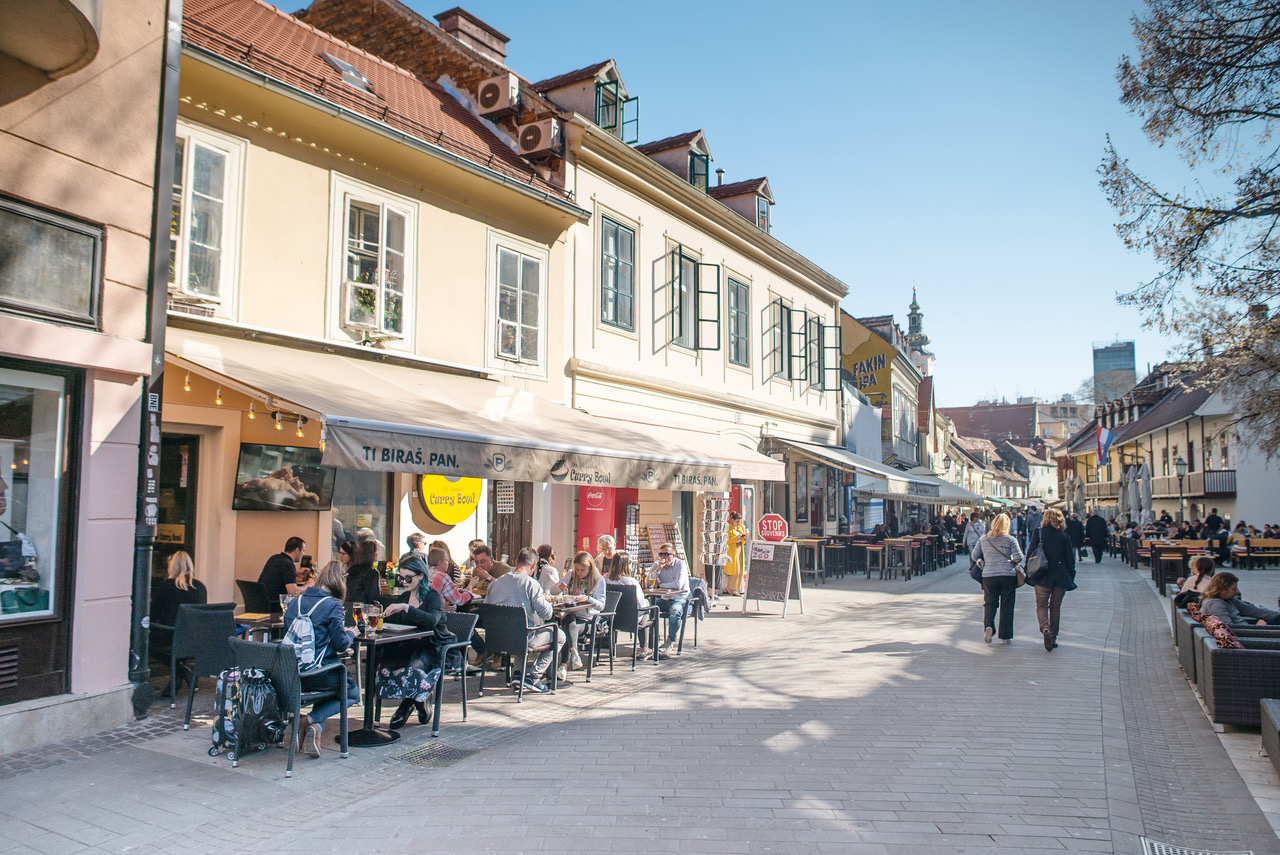
© Curry Bowl
Brian Senaratne: What is the main difference between social life in Sri Lanka compared to that in Zagreb? Clement, maybe your wife can give her perspective? She travels very regularly between Zagreb and Sri Lanka for modelling work as she is a former Miss Sri Lanka.
Tamara Senaratne: I love it here. The culture is just so different. I love the scenery too. For women in Sri Lanka, it doesn't always feel safe to walk on the streets. Here I feel completely safe, I feel a lot more free. The upbringing is just so different. In Sri Lanka, boys and girls are separated in education from a really young age.
Brian Senaratne: The British system! That comes from you guys, ha!
Tamara Senaratne: Ha! The result is that when you leave school you're not that familiar with the opposite sex, you don't know how to act with one another. I think a lot of people there have difficulty with that. When I came here, I was amazed that I could walk around at 10pm or 11pm on my own and feel completely safe.
Brian Senaratne: The scenery here in Zagreb is particularly enjoyable, especially the centre. We don't really have one central city that has developed in such a way in Sri Lanka, because each time we got new rulers – the British, the Dutch, the Portuguese – they changed where the capital was. The people we have met here, both in business and socially, have been very polite and welcoming. One of the most recent topics of discussion globally has been Black Lives Matter. I can honestly say we have not seen or experienced anything like that, any racism, while we've been here. We're very happy here.
Curry Bowl is located at Tkalčićeva 44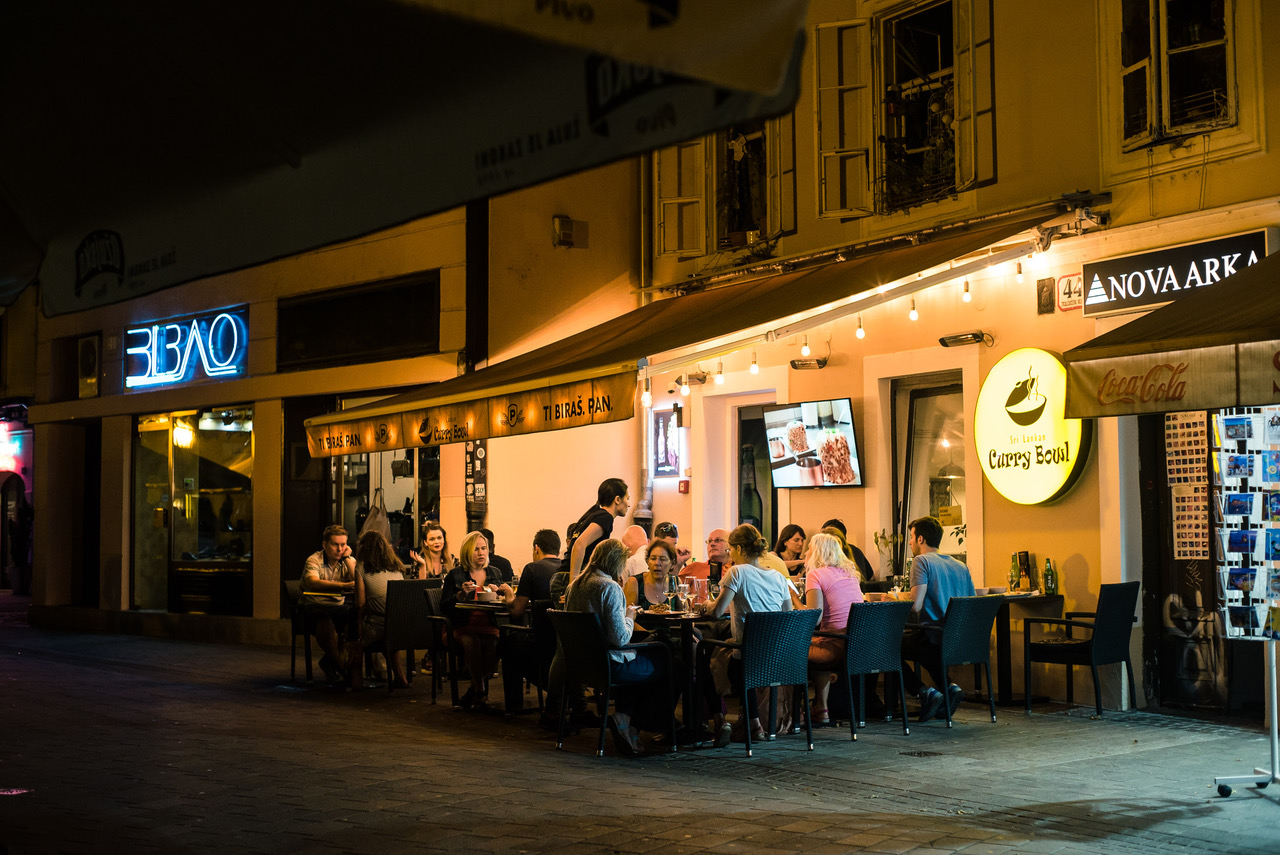
© Curry Bowl
You can read the introduction to our series on Zagreb international cuisine and the first installment here
To follow our whole series on international cuisine and to follow the Croatian restaurant and gastro scene, keep an eye on our Gourmet pages here
International Cuisine in Zagreb: Namaste
July 24, 2020 - Zagreb's food offer has grown considerably in quality and choice over the last decade, with Michelin stars galore and an exciting range of international cuisine options. We continue our look at some of the best new outlets offering meals never previously available in the Croatian capital, getting the story behind these businesses and their food. In this installment, we look at the authentic Indian cuisine and fine dining experience of Namaste
Attempts at offering international cuisine are not entirely new in Zagreb. But, quite a few who've tried have done little but that; try. Under-spiced, lazy and way off-mark, some approximations of exotic foreign dishes leave many an international visitor to Zagreb feeling underwhelmed. Situated across from Studenski Dom Stjepan Radić, a ten-minute tram ride from the city centre, Namaste is the total antithesis to such disappointments. Offering wholly authentic Indian cuisine and specialising in the menu of the subcontinent's south, Namaste is 100% the real deal.
An expansive set up with an exquisitely designed interior, this restaurant excels at offering a formal dining experience that will be a voyage of flavour discovery to the uninitiated. Prawn, fish, lamb and chicken curries are accompanied on the menu by freshly-prepared speciality breads, rice, salads, skewered kebabs and a myriad of paired sauces and chutneys, with a huge range of unmissable vegetarian options. To anyone passionate about food, a visit to Namaste is simply a must.
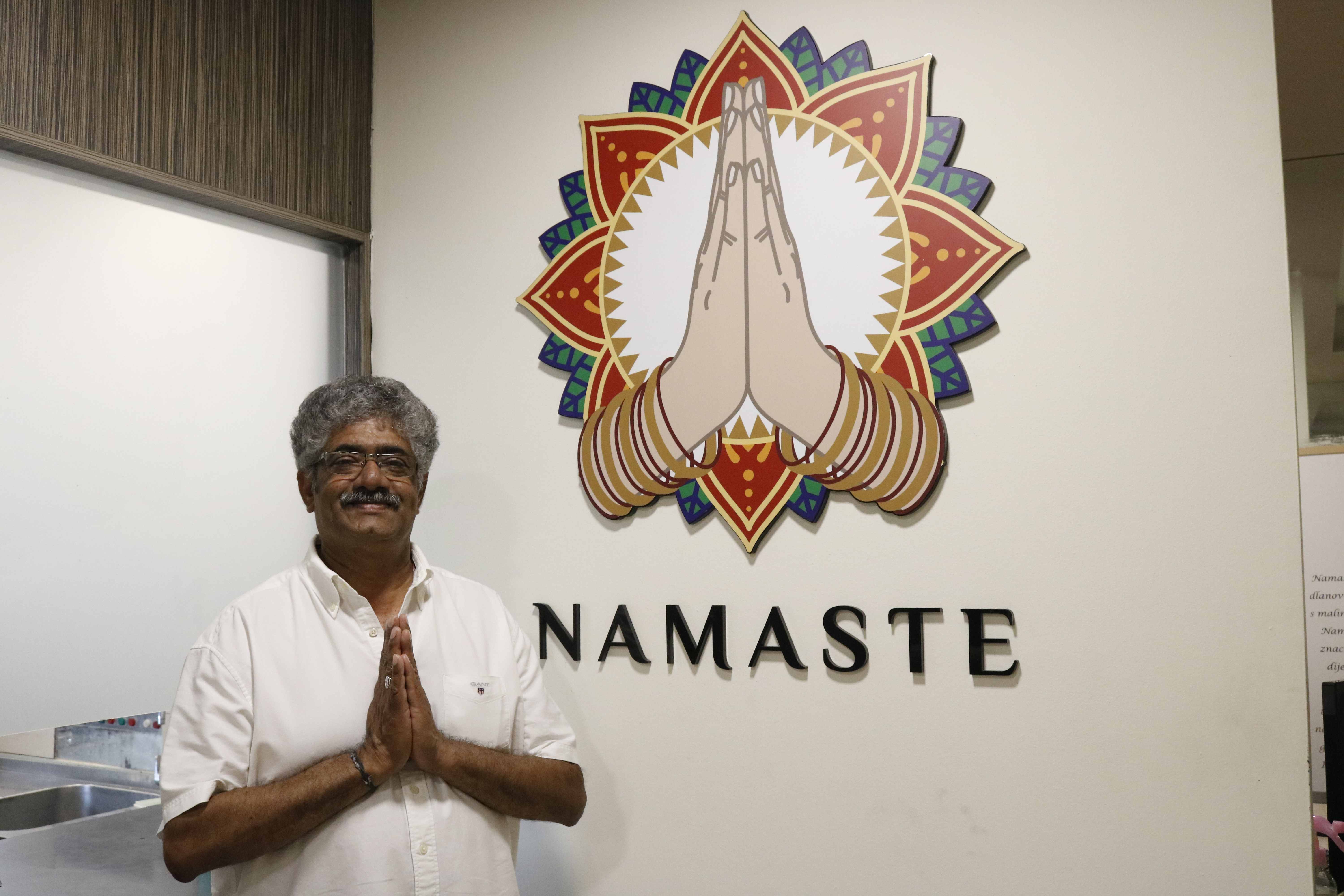 Dev Raj, proprietor of Namaste © Vedran Pažin
Dev Raj, proprietor of Namaste © Vedran Pažin
Interviewer: Hello Dev Raj! Raj means king, doesn't it?
Dev means God and, yes, Raj means king.
Interviewer: So, there's no mistaking you are the boss here!
Ha! I guess not. I was born and brought up in the south of India, in Bangalore, one of the biggest cities in the world. I first came to Croatia in 2004. I travel extensively. My main business is in granite and marble. It's the family business. We used to export a lot of it from India into Italy, especially Verona. I had an opportunity to go into the hospitality business in Croatia and that's the reason I first came. I subsequently set up in Croatia as the European base for the family business and we import our granite and marble through here to all regions of the Balkans and Europe.
The next business we moved into was the export of timber from here. We send timber from Croatia to India, Vietnam, UAE and China. Croatia has some of the best timber in the world. Certainly, the oak from here is among the best. If you go to a store like Oak Furniture Land in the UK, which has around 100 stores, probably 90% of the oak furniture they have comes from Croatia, although few people know that, because it first goes to Vietnam or China before being sent to the UK. Croatia also has excellent beech. We process the wood here, ship it to be made into furniture and then it is exported to places like the UK. It's a massive industry. On any given day, such exports from China, Vietnam, Malaysia and Cambodia total not less than $500 – 600 million.
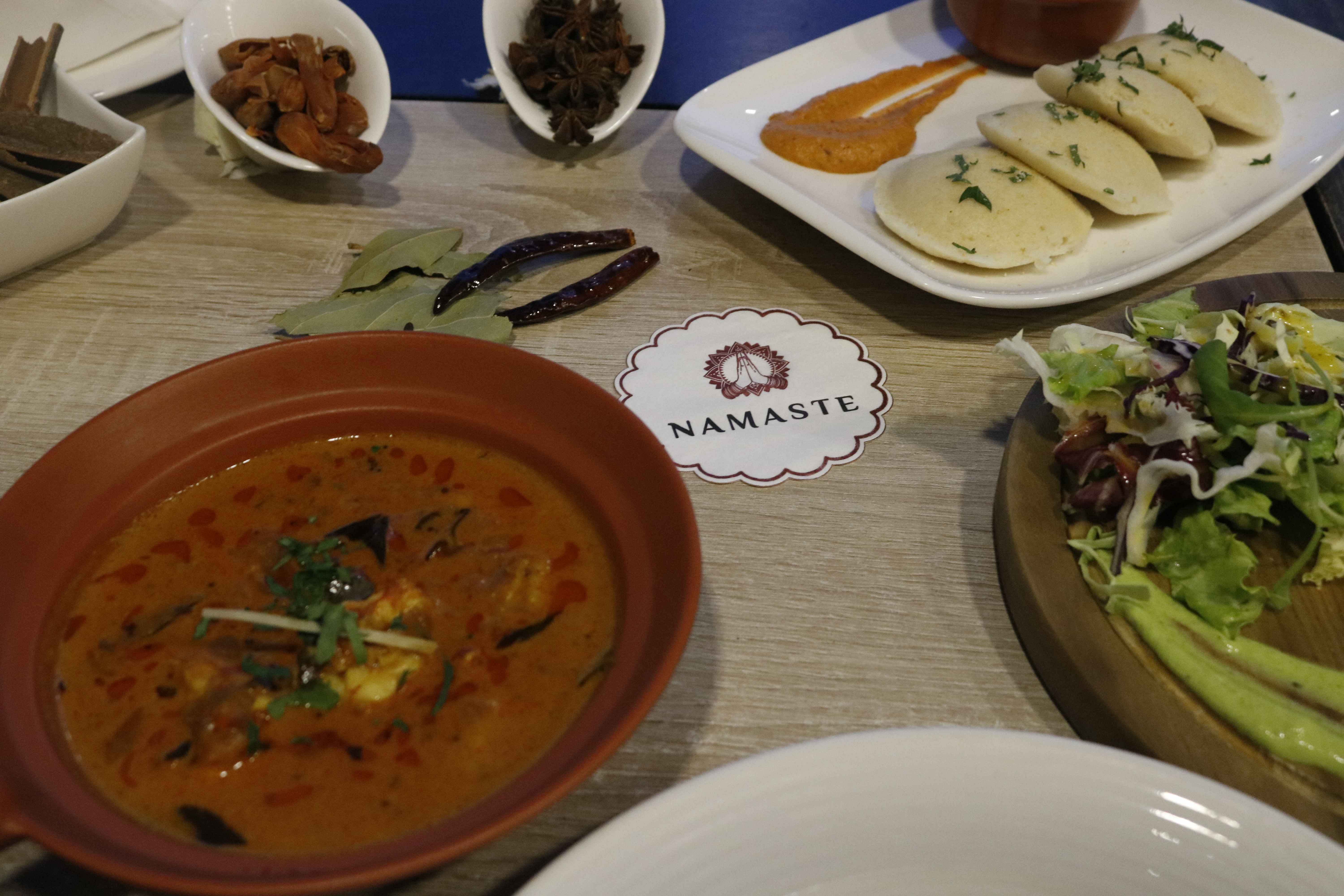 Namaste © Vedran Pažin
Namaste © Vedran Pažin
We started the Namaste restaurant just over two years ago. It is my passion. I always wanted to have a restaurant here and I wanted to do it right. Croatia has been good to me and I wanted to be able to give something back, something really authentic. All of our spices, rice and even the wheat flour we use comes from India, every 15 days, via London. All of the vegetables, meat and herbs we use are produced here in Croatia.
Food is different all over India. When you go to the south, where we are from, you see people eating more rice and things made from rice flour, such as dosa, which are like pancakes or igli, which is like a dumpling. Biryani is from there. Every state in the south of India has its own distinct flavours. Our food is very rich in spices and therefore very rich in flavour and in medicinal value. Alternatively, in the north of India, everything is based around the oven, like a Tandor clay oven. More bread, more wheat and spices which make the dishes hotter, because it's colder up there. We feature some cuisine from the north in our menu here.
We have a total of nine chefs in the restaurant. All of them are Indian and three of them used to work in London, so they are used to cooking for the European palette. All of them have experience working in 5-star hotels. Most of my waiting staff are also from India, the rest are from Croatia. Ours is one of the largest restaurants in south-east Europe and we set the bar extremely high. It is more like a fine dining restaurant. A lot of consideration went into the design and the furnishings and the staff always look spick and span. We selected the best of the best wine after pairing it with our food, which is normally not done. We made sure we got everything right. After a few months of being open, it worked and we could see some of the same faces coming back time and time again. We are full every Friday, Saturday and Sunday night. Before Corona, you would have needed a reservation to be able to eat here on one of those nights. The people who come have grown to love the flavours we do. Every time they come, they can count of the flavours being consistent and the meals just as delicious as the last time they ate here.
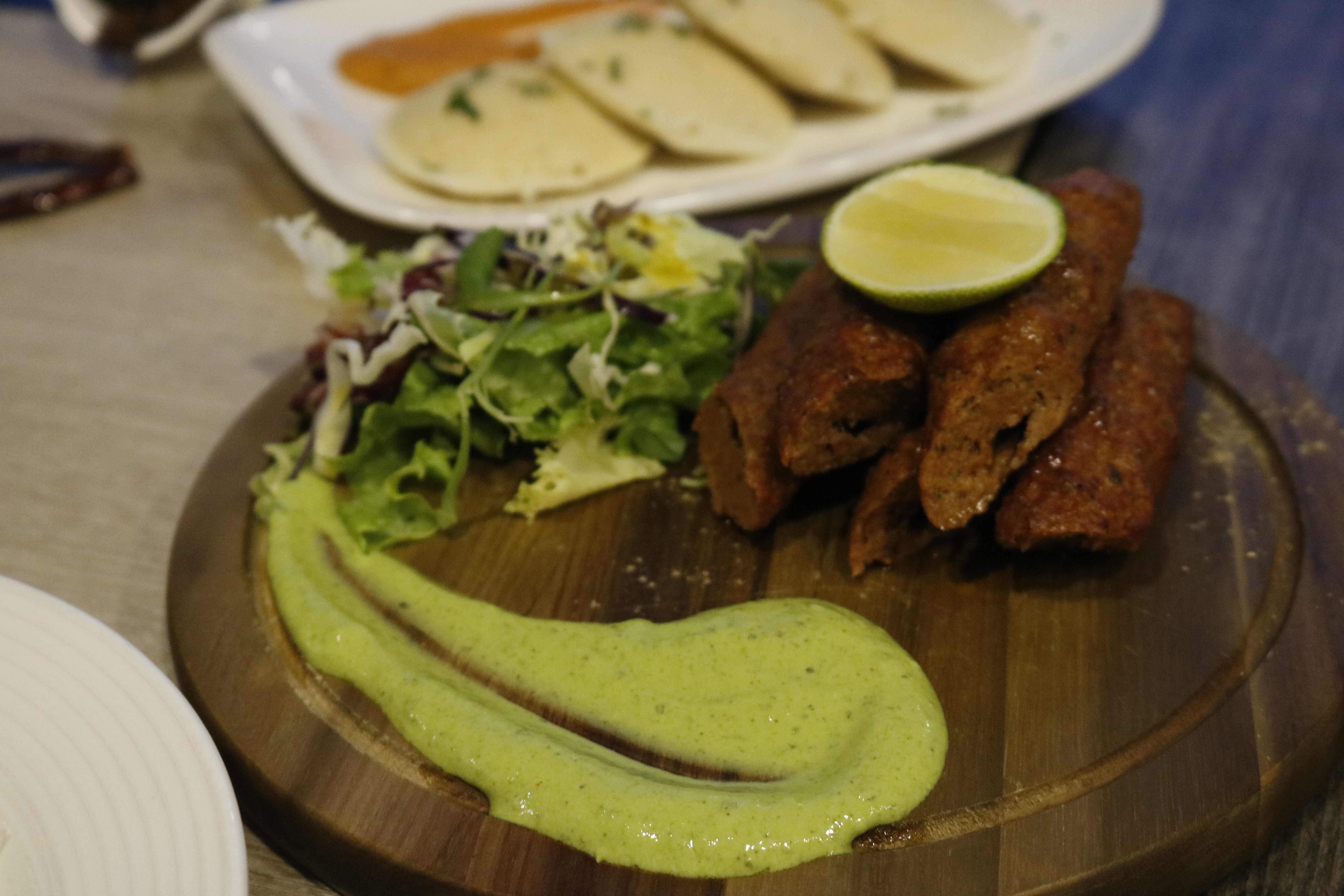
Namaste © Vedran Pažin
The most popular dishes here are the butter chicken, the chicken biryani and the dosa. They also love the lamb seekh, which I guess is a bit like the Indian ćevapi. My personal favourites? I love the daal, it's excellent. I also love the Chicken Chettinad curry, which is an authentic dish from the south of India, and the garlic naan. I also love the fish dishes. The chef responsible for the fish dishes is really one of the best guys in the world at making that style. He was famed for doing so in southern India before I persuaded him to come here. We only use fresh Croatian fish in such dishes and we use Orada and Brancin, the best we can get. Everything we make is first tasted and quality checked before being put onto the plate and presented to the diner.
What do I think of Croatia as a country in which to do business? It's a good question, a hard question. It's a very small country for me to have come to for our international family business. But, to its advantage, it is located very centrally in Europe. East and south-east Europe are incredibly accessible from here and there are two beautiful ports in Ploce and Rijeka. If I want to travel anywhere else in Europe, I can do so from any of the large number of airports they have here. So, for good connections and logistics, Croatia gets an A star. For nature too, also an A star - Croatia has the best beaches and coast plus incredible natural resources. These are the plus points. But, they still have some distance left to travel in regards to accommodating foreign business.
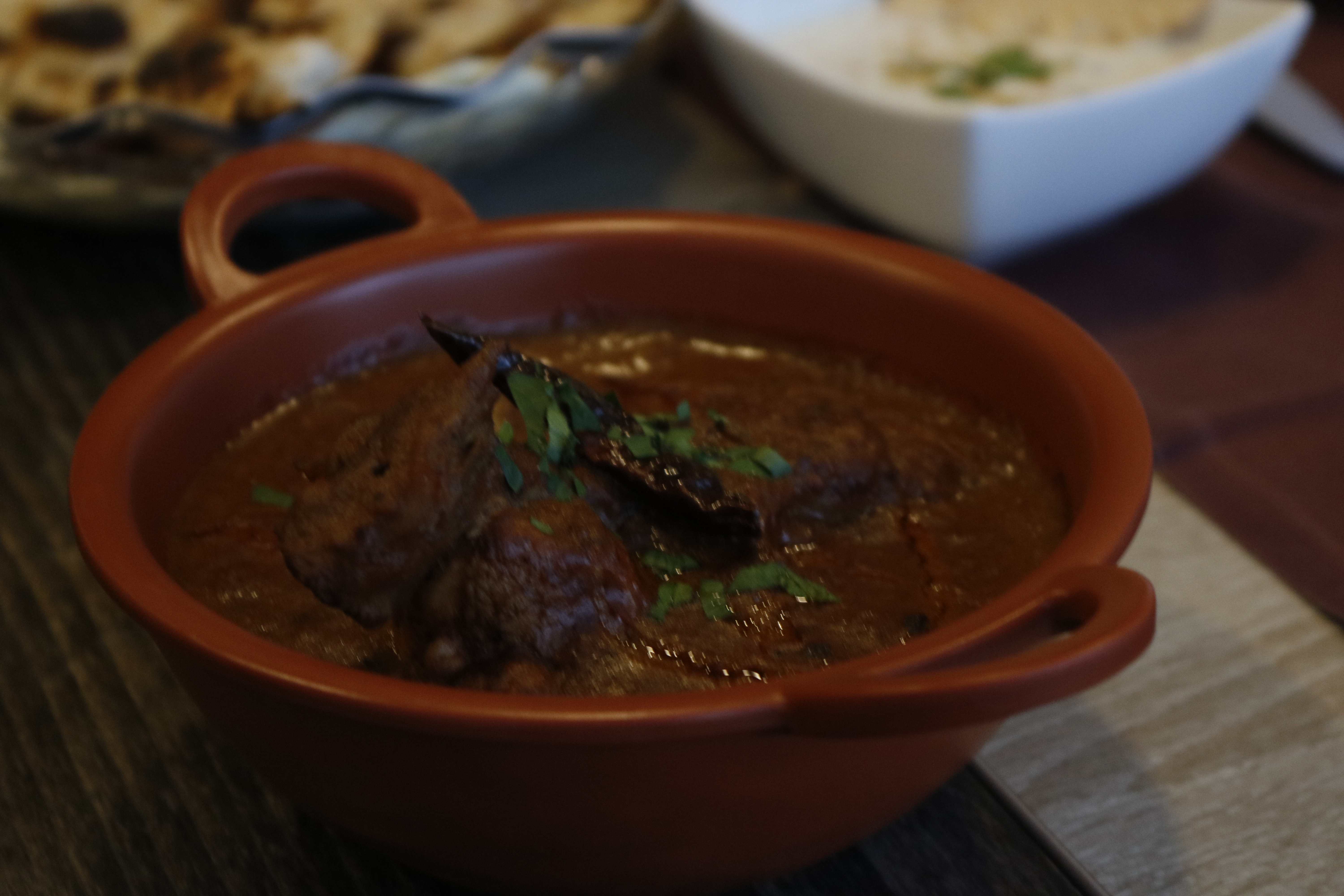
Namaste © Vedran Pažin
For instance, if you're a businessman or entrepreneur who wants to come and set up a business in Croatia, this first step of setting up a company is easy. Employing local staff is also very easy. But, if you want to bring in specialist staff from another country, it's a huge risk, because they will only guarantee their working visa for one year. If I want to invest $100, 000 to 1 million here, why can I not bring my specialist, experienced staff from another territory in order that it succeeds? It's a huge risk that their visa will not be extended. One good aspect is that you can approach anyone for help – the bureaucrat or even the minister – and tell them what you need. You can get that access. They will listen and understand, although sometimes the reaction can be very slow and there's always a huge amount of paperwork. They love their paperwork. They need to get rid of a lot of that. And they need to set up a standard window of opportunity for investors from any region, with a full package designed to assist you in setting up business here. If they did that, the GDP could double within 10 years. It's a slow progress that has been taking place since independence and the war. But, God has given them the best resources and the people are good, so I believe they will get there.
Namaste is located at Selska cesta 217
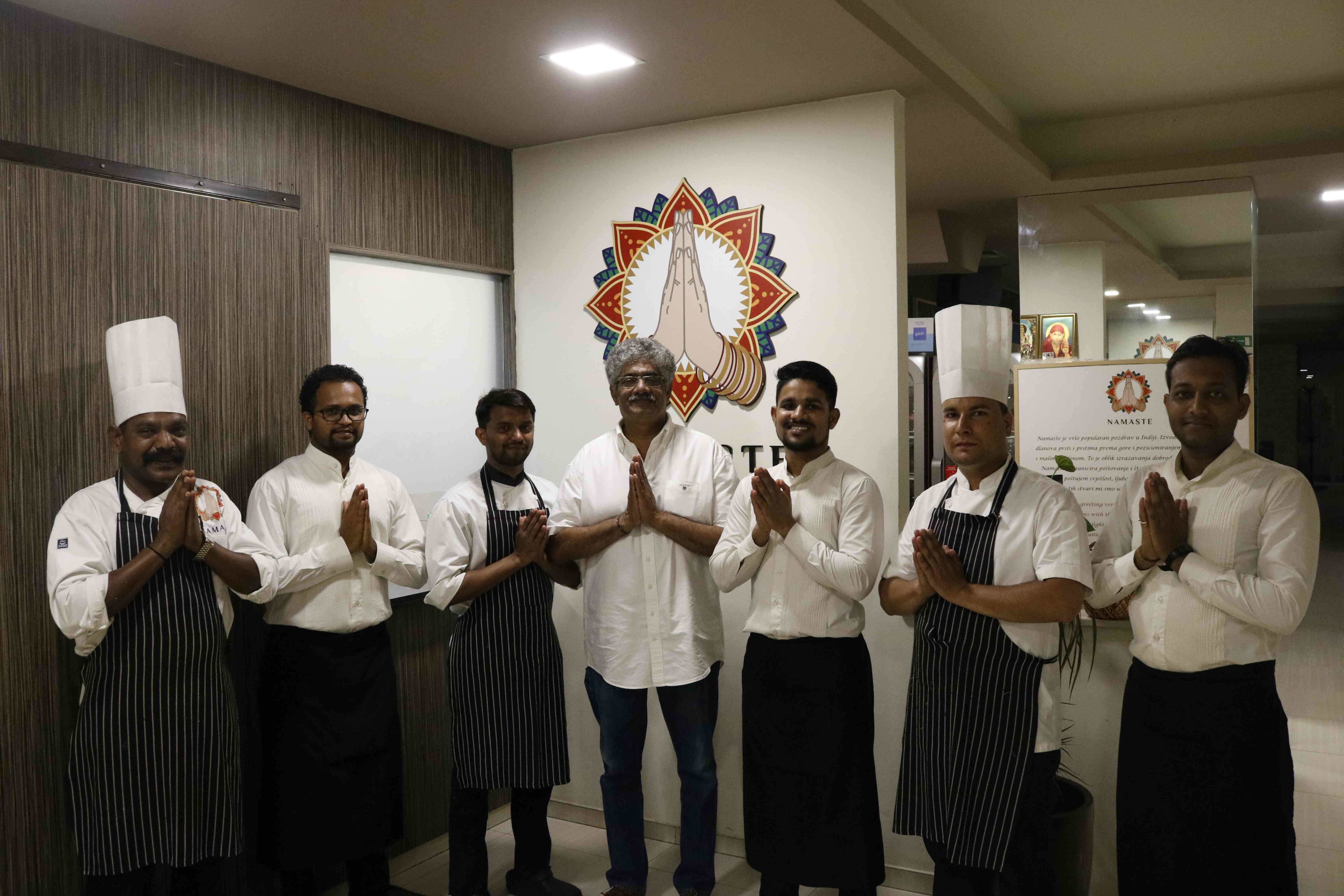
Namaste © Vedran Pažin
You can read the introduction to our series on Zagreb international cuisine and the first installment here
To follow our whole series on international cuisine and to follow the Croatian restaurant and gastro scene, keep an eye on our Gourmet pages here
An Expat Guide to International Zagreb Cuisine: Lazeez Lebanese Cafe
August 29, 2020 - Lazeez Lebanese cafe
Introduction
The construction work never ends. Ask any resident of Zagreb trying to sleep through summer with the window open, they'll tell you. When city streets fell silent during the height of the Corona lockdown, you could still hear the cranes, the steel, the engines, the profanity. Office blocks interrupt the horizon. Roads - wide like rivers in spring - appease the ever-increasing flow of traffic from the suburbs. And, yes, water erupts from all new fountains. Under the mayorship of Milan Bandić, the Croatian capital's appearance has changed considerably in the last 10 - 15 years.
But, beyond the reshaped streets and skyline, what kind of city will the mayor bequeath when he eventually leaves office? Over recent times, one heralded achievement has been that Zagreb has become a multi-ethnic, multicultural European capital. And, whether you're a fan of the mayor or not, you cannot deny that's true. The gangs of tourists guided around summertime streets are not the only exotic new additions here. In the last decade, Zagreb's population has evolved to embrace folks from all over the world. And nowhere is this more noticeable than in choice of food on offer.
Where once you'd have struggled to find much beyond pekara and pizza, burger and burek, ćevapi and the odd Chinese, Zagreb's food menu now boasts cuisine from all over the world. And, as new arrivals have broadened the palette of the city, just as many locals have been inspired to offer alternative eats. In this series, we'll take a look at some of the best that's now on offer and get the story behind these businesses and their food.
Lazeez Lebanese cafe
Located next the Tuškanova tram stop, just a few minutes walk from Kvaternikov trg or Džamija (Meštrović Pavilion / Home of Croatian Artists), Lazeez is an informal cafe and takeaway that specialises in the food of Lebanon, where owner Ihab Abisaid originally comes from. In warmer months, there are few greater rewards after a morning's shopping on the outdoor market, Tržnice Kvatrić, than relaxing on the covered terrace of Lazeez, snacking on a salad or the best hummus in the city. For dinner, they offer a range of platters and authentic kebab-like wraps, popular middle-eastern dips, falafel and hot, filled flatbreads called arays.
 Ihab Abisaid © Total Croatia News
Ihab Abisaid © Total Croatia News
I left Lebanon in 1993 and went to Moscow, where I finished Dental school. In 2011 I came here and opened the city's first Lebanese restaurant on Radnička. I worked there for two years and then went back to Moscow. But, I missed Zagreb. My whole family love Zagreb. It's so safe here and the weather is so much better. It's a great place to raise a family.
I came back in 2018 and ran a restaurant on Tkalčićeva with a partner, before moving here to set up Lazeez on my own. I go back to Lebanon twice every year to visit my extended family. Although I'm not Muslim, we don't use any pork meat here simply because it just isn't used in Lebanese food. In Lebanese cuisine there are lots of vegetarian dishes, especially salads and dips, and lots of barbecued dishes. Sesame oil, sesame paste, and tahini are key ingredients. We use them in dips like hummus, which is made from chickpeas, and muhamara, which is made with walnuts. We make falafel from chickpeas and our sandwich wraps are flavoured with Lebanese sauces, which are a completely different flavour to what you can find elsewhere in Croatia.
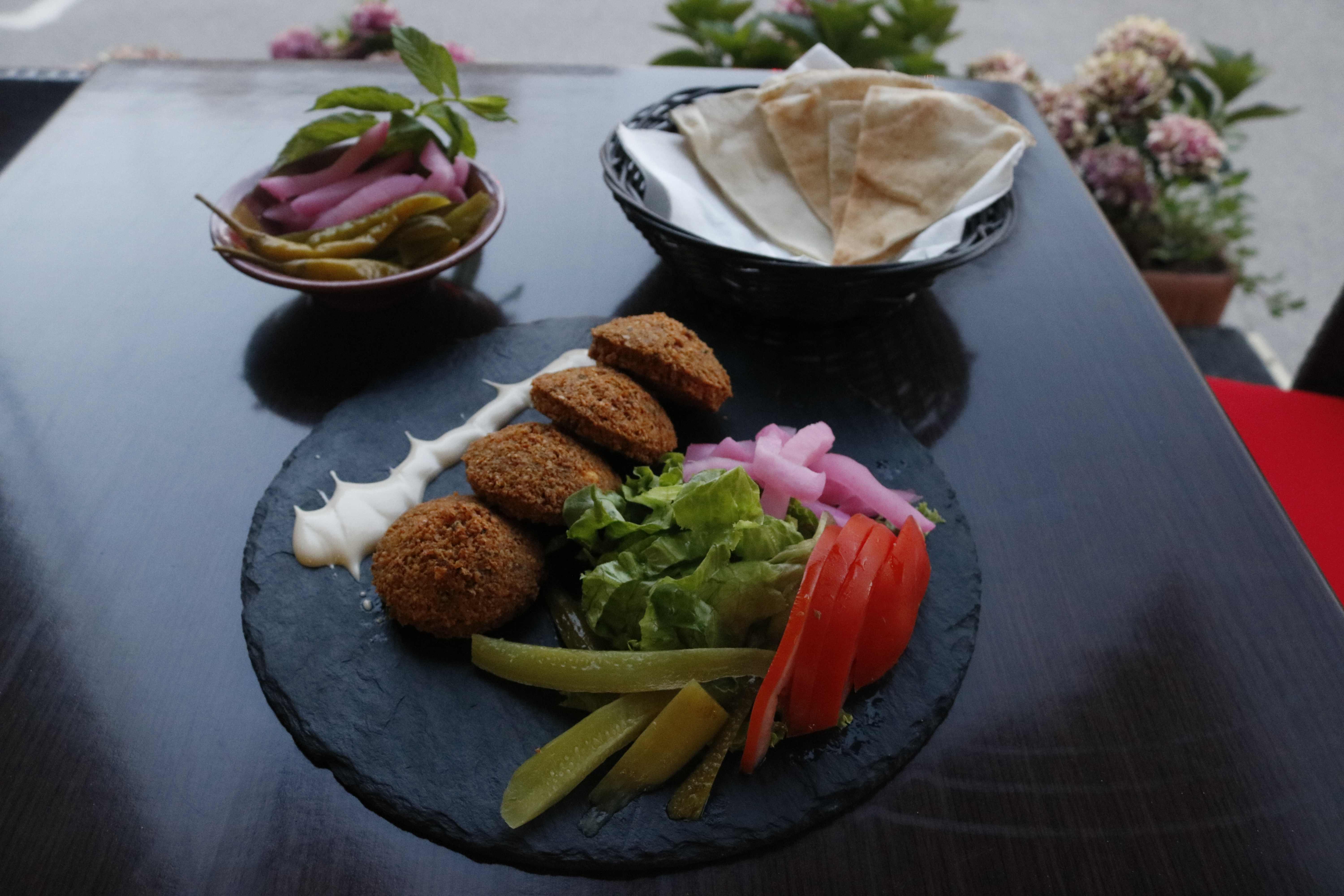
Falafel and side dishes at Lazeez © Veki Pazin
I think people enjoy the food here because it's natural and healthy, as well as being delicious. We use fresh herbs every day – parsley, mint and coriander. The spices we use are more exotic than you would find in local cuisine. Cumin features a lot and there is a classic Lebanese mix that contains seven spices in measured amounts. We use that often, especially in the meat dishes, and it's key to giving our food its Lebanese identity. Lebanese food is quite spicy, but it's not hot, like with too much chilli. The spices we use add flavour, not heat.
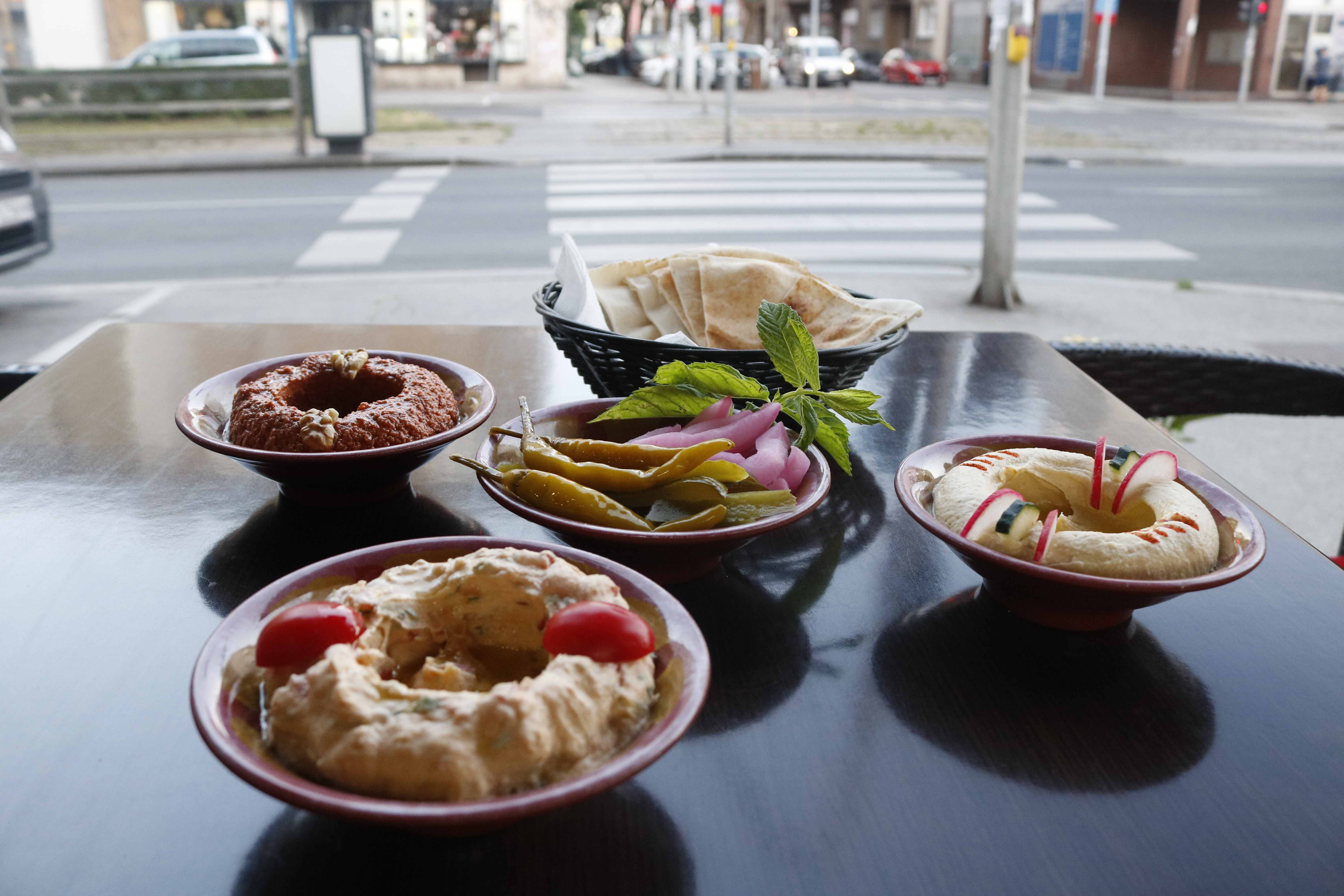
© Veki Pazin
I employ several members of staff here. Our full-time chef is from Syria and she is essential - Syrian food is quite similar to Lebanese. Before Corona we had one guy from Algeria working here, but the rest of the staff are Croatian. On our terrace every day you can meet people from many different countries and cultures, although most of our customers are Croatian. Zagreb has changed greatly since 2011. For me, what's most noticeable is the change in mentality. People are a lot more open now, accepting of outsiders and willing to try new things, like our food. I think people are more interested in eating healthy now, too.
You can find Lazeez Lebanese cafe at Zvonimirova 59
Chef's Stage in Šibenik: Gastronomy Influences Perception of Destination
As Morski writes on the 18th of March, 2019, yesterday one of the most important gastronomic congresses in the Republic of Croatia - the Chefs' Stage, began. The gastronomic event has been taking place in the historic Dalmatian city of Šibenik from the 18th to the 19th of March, and has been attended by the State Secretary of the Ministry of Tourism, Frano Matušić.
This Šibenik-based gastro event, which brings together some of the greatest names of both the Croatian and the international gastro-scene, has created discussions on a number of issues related to gastronomy and the hospitality sector, with the aim of linking those who work in tourism, hoteliers, manufacturers, suppliers, influencers, and all other types of professionals within the industry, as well as all enthusiasts of a high quality gastronomic scene.
At the very beginning of Šibenik's Chefs' Stage, the importance of gastronomy for Croatian tourism was pointed out by the longtime Croatian Minister of Tourism, Gari Cappelli:
''As many as 93 percent of tourists take part in some kind of ''special experience of food and drink'' during their trip, suggesting that today, gastronomy is a piece of content that can significantly affect the perception of an entire destination and influence the level of satisfaction guests have with their overall tourist experience. Croatia is successfully building its image as a high quality gastronomic destination, which is best acknowledged by our recognition by the world renowned Michelin and Gault & Millau guides, and with further connectivity with local producers and building ''stories and experiences'' related to our eno-gastronomic products, Croatia can become one of the gastro icons of Europe,'' Capelli stated.
During the two day Chefs' Stage, there were numerous panel discussions, masterclasses with well-known chefs, and lectures on gastronomy with the beautiful backdrop of Šibenik adding to the ambience. Among other things, the panel related to the project of linking the food-processing sector and the tourism sector through the establishment of local production systems and the territorial branding of the Republic of Croatia as a recognisable gourmet destination. It is a project aimed at positioning Croatia as a gastro icon affirmed through local foods, authentic tastes, and diverse cultural heritage, and for that purpose an action plan for the development of gastro tourism will soon be presented.
The panel titled "What Croatia needs" was attended by Secretary of State Frano Matušić, who himself emphasised the fact that gastronomy is one of the foundations of the development of year-round tourism. He said that according to research by TOMAS Summer 2017, gastronomy was highlighted as one of the main motivators for the arrival of guests in Croatia. Namely, according to that piece of research, as many as 29 percent of respondents emphasised gastronomy as a motive for making Croatia their choice.
''A large contribution will be given by the Competence centre which will, through networking and cooperation with powerful foreign centres, contribute to strengthening the quality of education in the tourism and hospitality trade, which will ultimately affect the quality of our country's gastronomic offer,'' concluded Matušić.
The second edition of the largest gastronomic congress in this part of Europe - Chefs' Stage, brought 50 Croatian and 33 international chefs and other professionals together in Šibenik over a two day period, with products being presented by 70 Croatian producers and winemakers, along with the presence of representatives of various gastro-oriented international media.
Make sure to follow our dedicated lifestyle page for much more.
Inside Rijeka: Top 20 Places to Discover This Wintertime
December 13, 2018 — Though the season hasn't even officially started yet, here in Rijeka the forthcoming winter has already shown its hand and oh baby, it's cold outside!
Despite the unseasonably warm weather we experienced in November, the days are now noticeably shorter and colder, reminding us it's time to embrace the magic of winter and make the best of it.
One way to do so is to give yourself a nice warming boost every now and then by casually indulging in hot drinks, typical wintertime foods, and decadent desserts. Just wrap up in something warm and come out for brunch or evening cocktails; or you can set aside a couple of hours just for coffee — an absolute favorite waste of time among Croatians.
Apart from its ongoing traditional Advent festivities, Rijeka is full of cozy little cafés, slick bars, and charming eateries so take a look at our pick of some of the best places to hang out at during the chilly days and nights in the "city that flows."
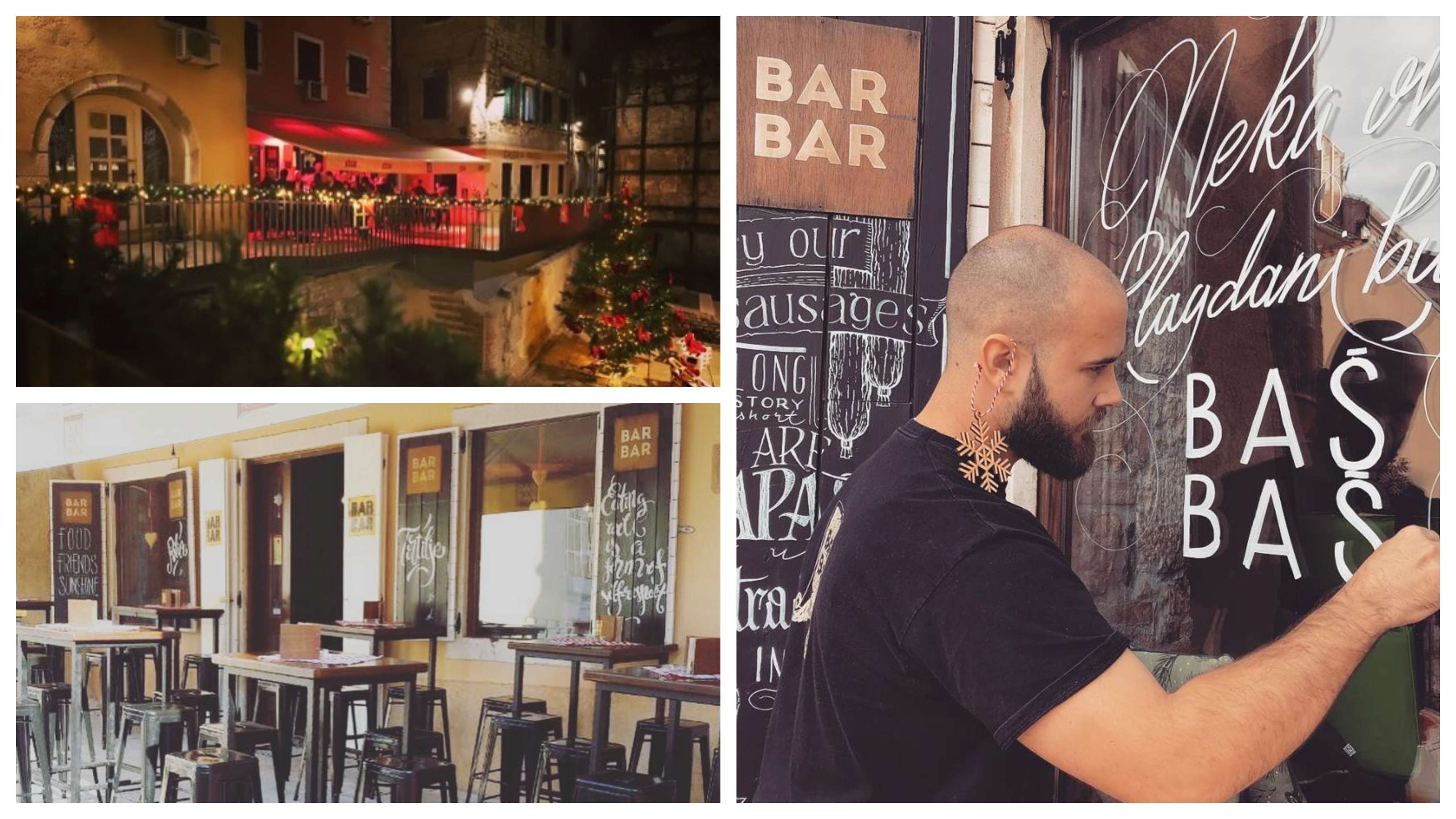
Bar Bar
This popular tapas bar is located in the heart of the historic old town and boasts a cute little terrace overlooking one of the city's archaeological sites. With elegantly assorted appetizer boards meant for sharing, Bar Bar is the perfect choice for meetups with friends, dates, or an after-work happy hour. And if you're feeling hungry, but you can't make it to Bar Bar, I recommend you stay away from their Instagram. On top of delicious foods and a wide selection of drinks, this stylish bar offers occasional live music and dance parties.
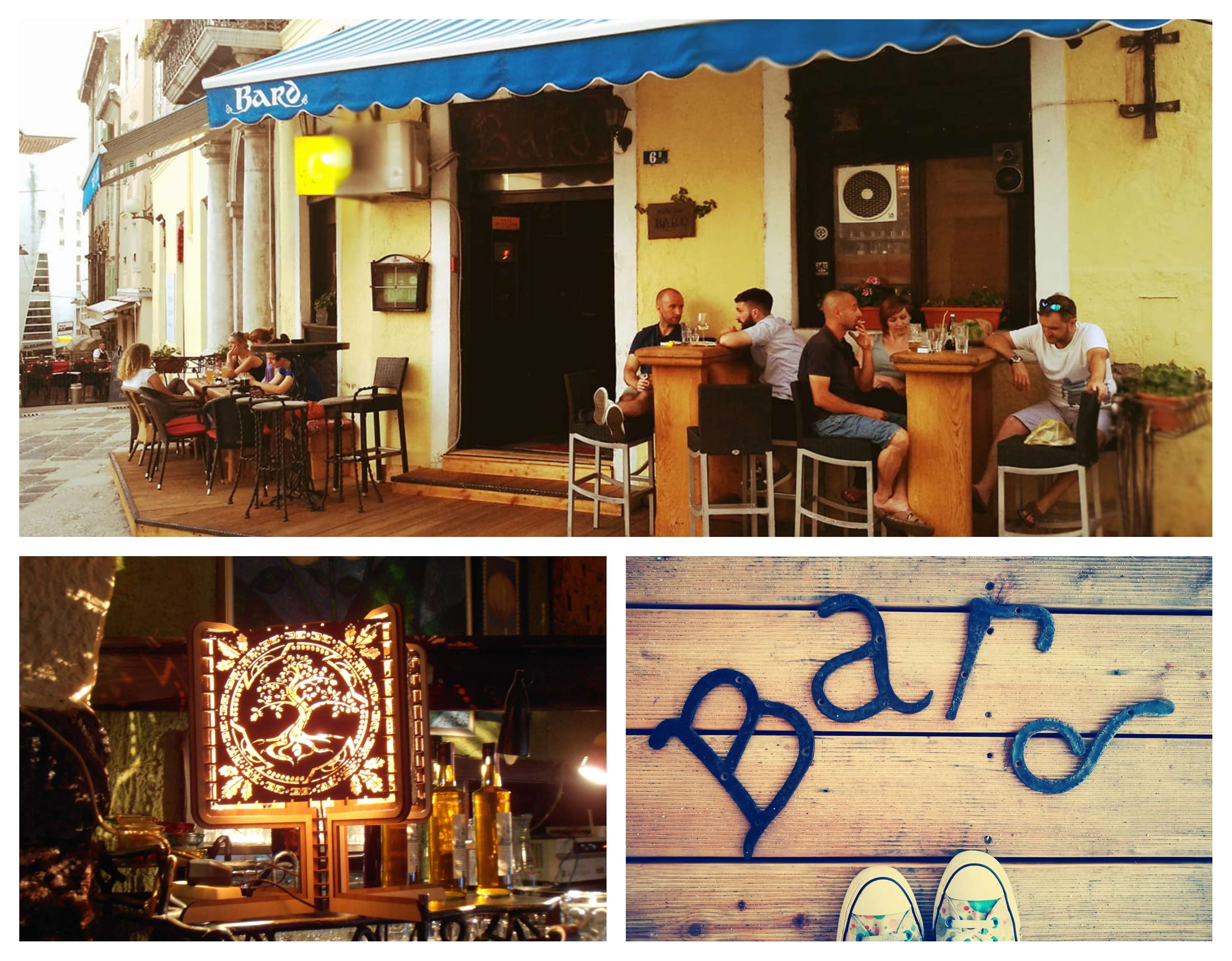
Bard
Most known for friendly staff, good selection of beers, and great atmosphere, the Celtic-themed Bard pub is usually packed on weekend nights so make sure you get there early. When the place is full, people regularly enjoy their drinks sitting on the sidewalk in front of the St Vitus Cathedral that's just across the pub. Since it's wintertime, a far better solution is to simply share a table with some random strangers and make new friends because in Bard, that's always an option.
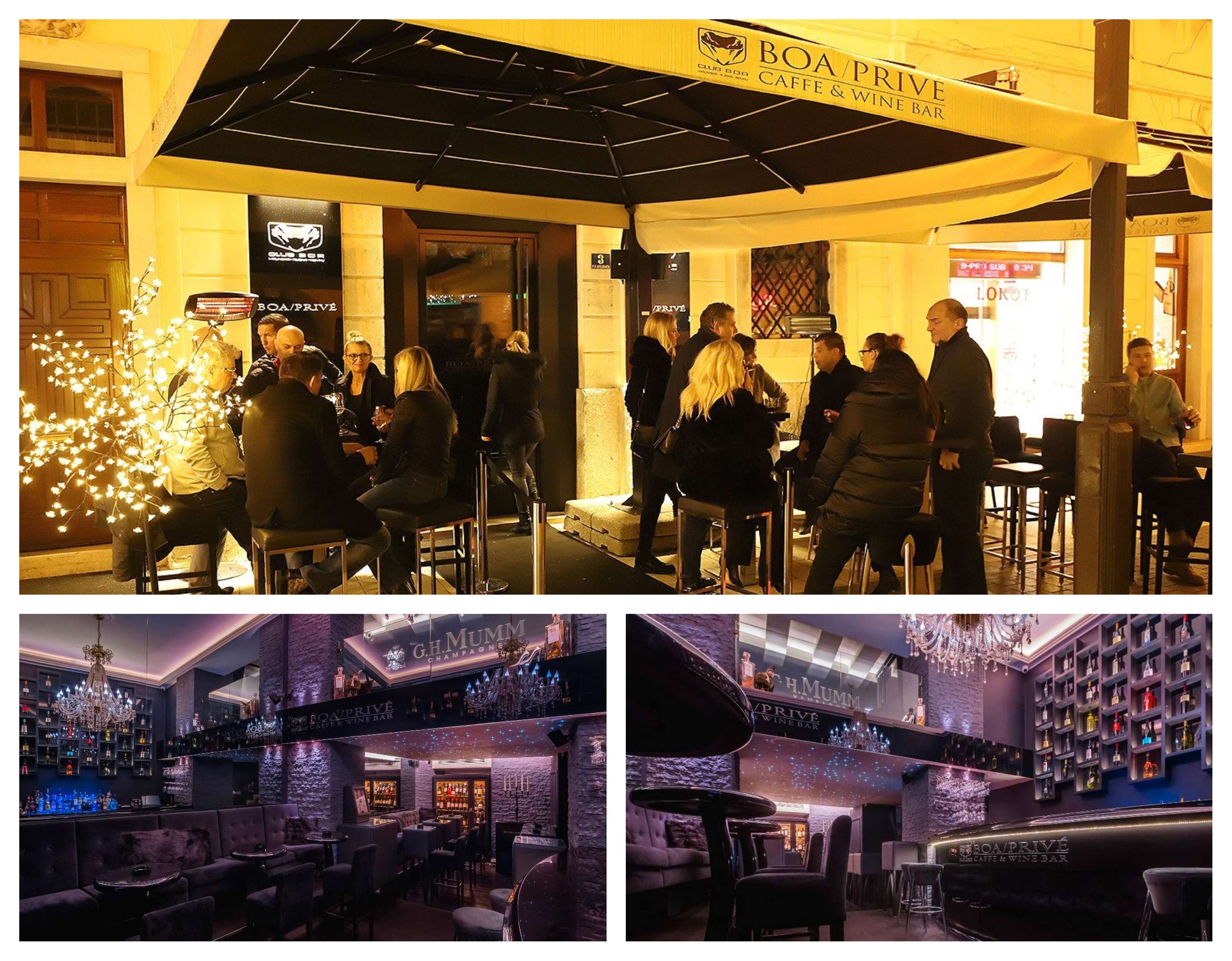
Boa Privé
This fancy cafe and wine bar opened about a year ago and quickly became popular among the locals. Boa Privé's friendly staff along with outstanding service and an overall chill atmosphere will make you return again and again. Their wines are fairly priced, and the list is impressive, while an amazing ambiance makes it a great place to spend some quality time in the evening.

Book Caffe Dnevni Boravak
The name of this cute little book cafe translates to "living room" and that perfectly sums up both the atmosphere and the level of coziness you'll find there. Dnevni boravak boravak is one of those places where you immediately feel at home. During the day you can enjoy some peace and quiet while having coffee, while the evenings are reserved for book promotions, public readings, workshops, and other events, with occasional live music, cocktail parties, etc. On top of that, for non-smokers, there is a separate room which doubles as a gallery.
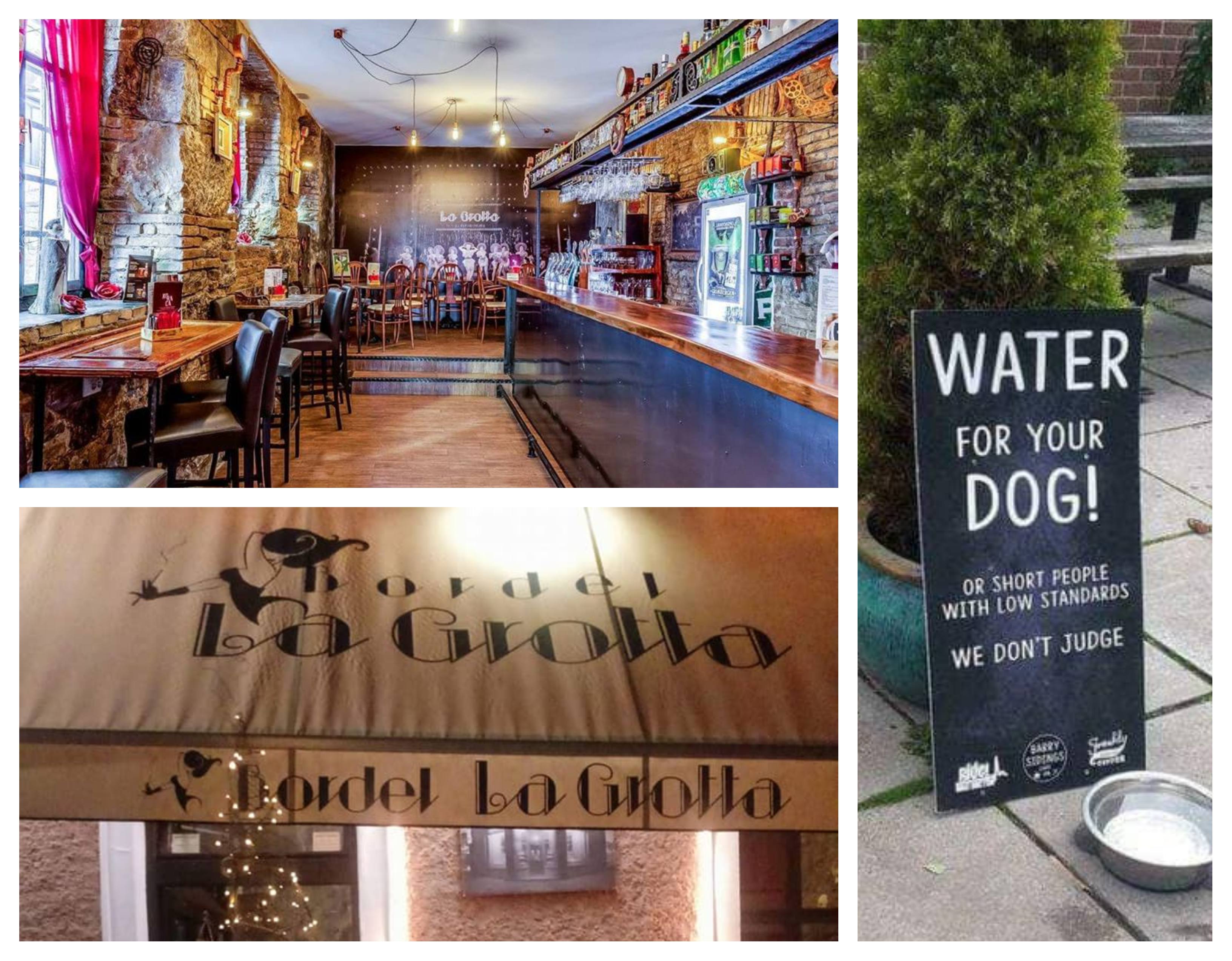
Bordel La Grotta
When the current owners started renovating this place, they found a peculiar price list dated from 1944. Back then, while Rijeka was under Italian occupation, La Grotta was one of the city's most elite brothels. The whole story, including the said price list and other curiosities of the house, inspired La Grotta's interior design, and the owners also decided to keep the name, but the offer is slightly different. Today, the locals flock to La Grotta for some delicious heartwarming comfort food and a great selection of beers. Oh, and the prices are ridiculously low — they might have rewritten the 1944 brothel's menu items, but kept the fees? We can't tell for sure.
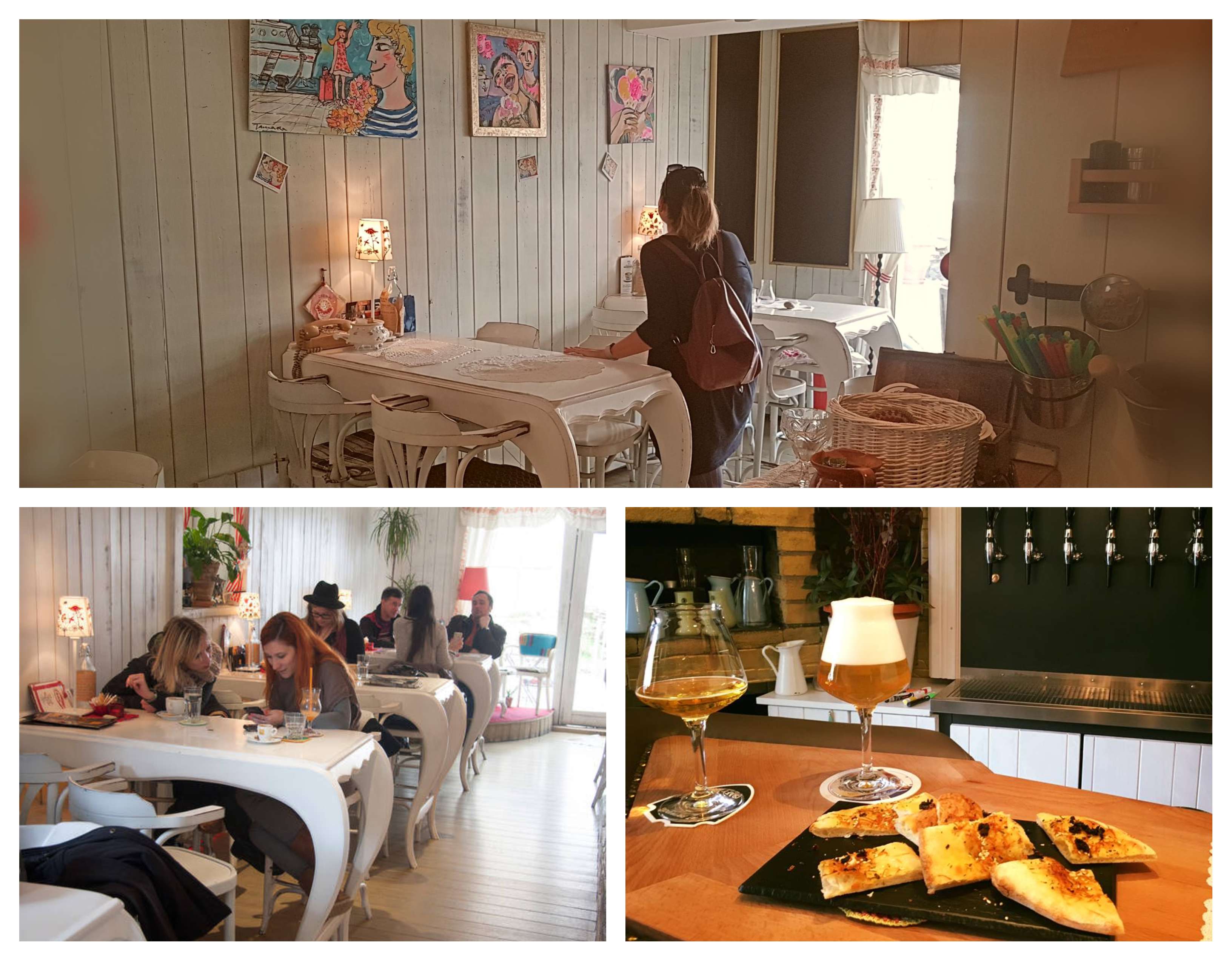
Cukarikafe Bar
This adorable place decorated in a shabby chic vintage style with refurbished grandma-style furniture, flea market finds, and numerous trinkets donated by a number of regular guests has been one of Rijeka's favorite cafés ever since it opened. What makes Cukarikafe stand out is its special energy but also a variety of events that his cafe is hosting — here you will find anything from local artists exhibitions, handmade crafts and design fairs, cocktail parties, various thematic evenings, etc. Cukarikafe also boasts an impressive selection of coffee, spirits, wine, and craft beer, in addition to some really great foods like artisan charcuterie, breakfasts, daily specials, quiches, cakes, and pastries.
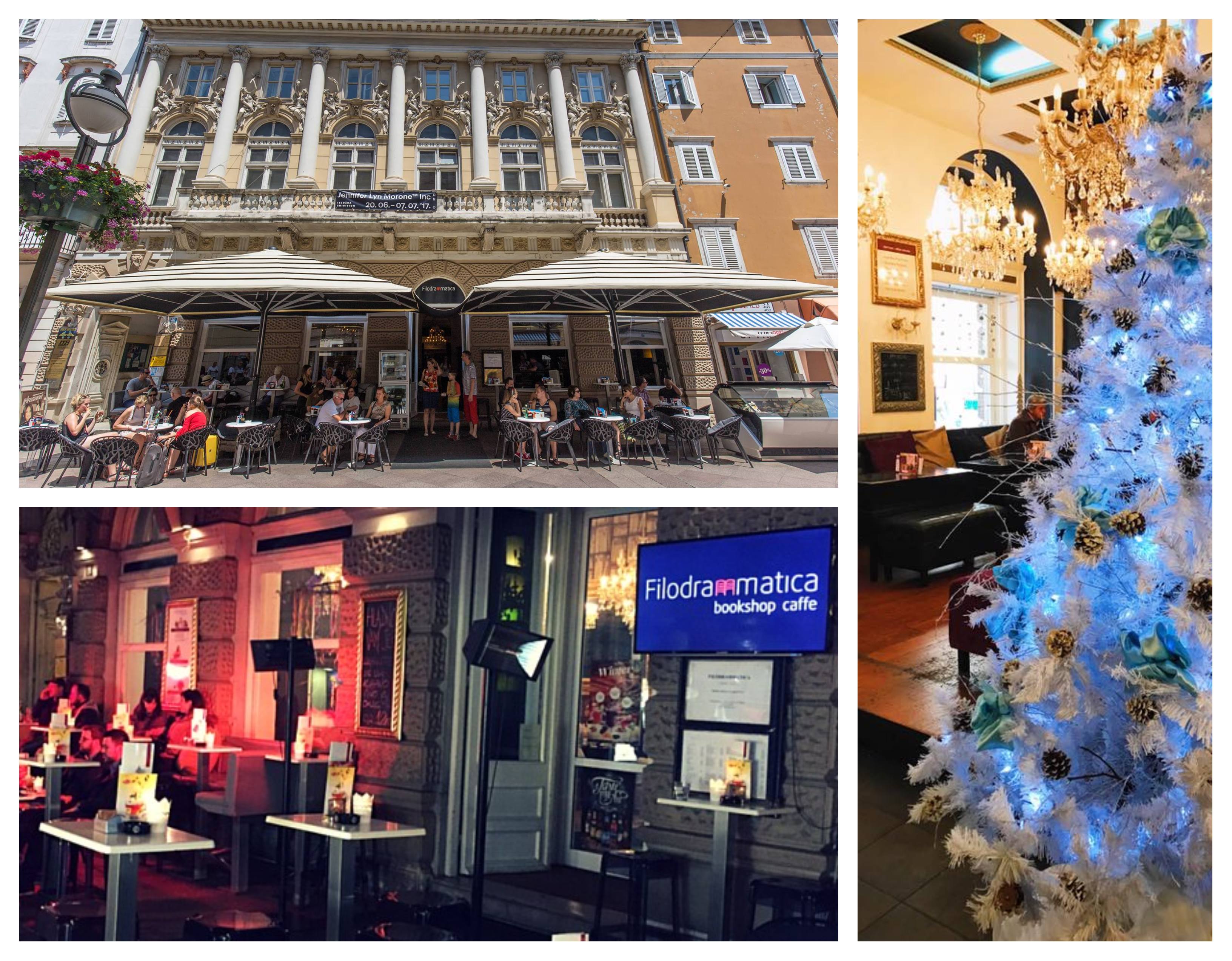
Filodrammatica
The beautiful Filodrammatica building was designed by architect Giacomo Zammatti and constructed in 1890 to be used by the Italian Philharmonic Drama Association — hence the name — and in 1992, the house was declared a protected cultural heritage site. Today, Filodrammatica is one of Rijeka's favorite coffee houses but also doubles as an art gallery, and it is conveniently adjacent to the Rijeka City Library's central department. The place offers some of the best coffee in town but also a decent selection of cocktails, fresh juices, snacks, and desserts.
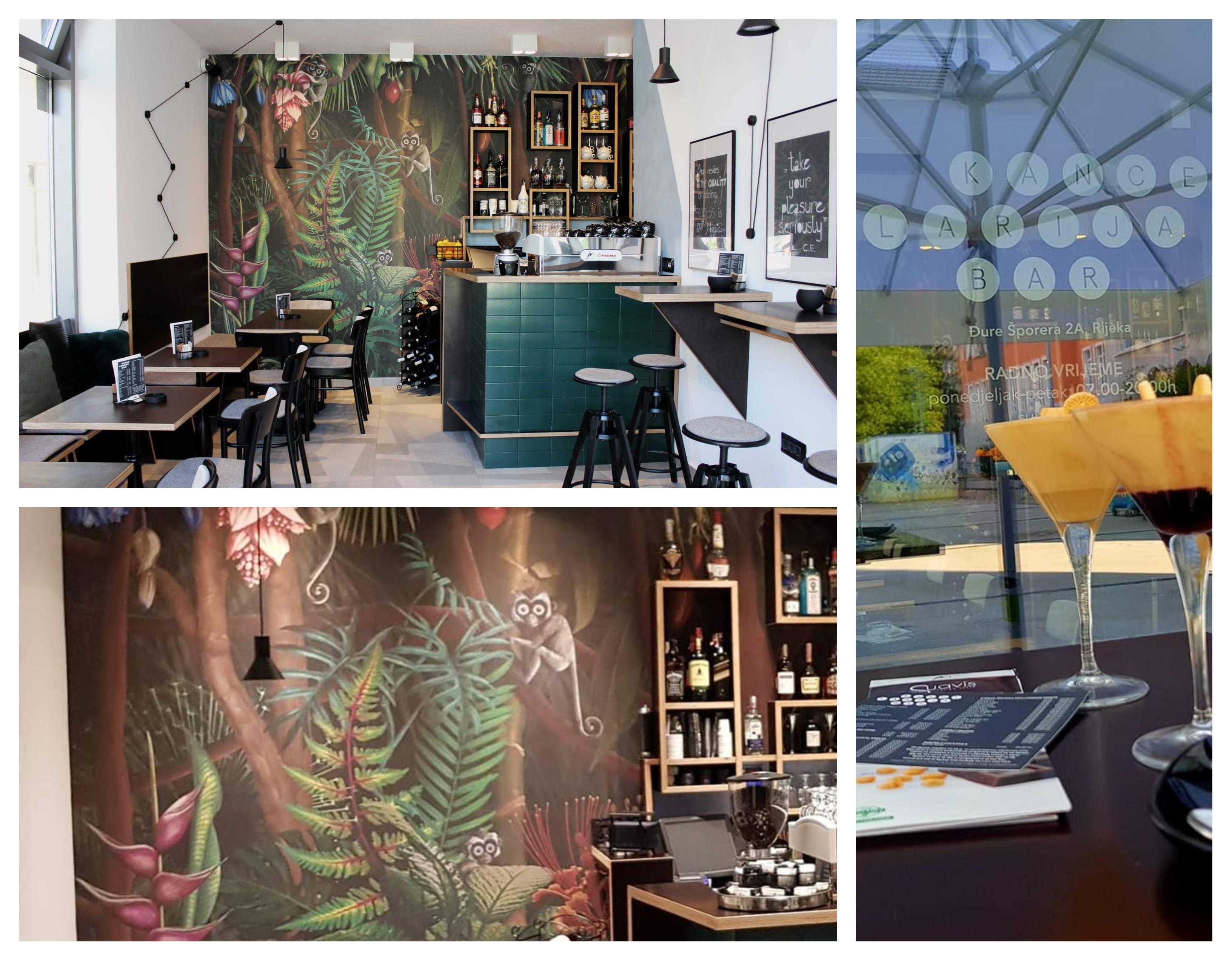
Kancelarija Bar
"The only 'kancelarija' (lit. chancellery; office) where having fun and relaxing over a cup of coffee is mandatory," their motto says. This stylish little bar located within the Galerija Rijecka business and housing complex opened just this summer and instantly became a favorite spot among the locals. Though the place will occasionally host night-long parties, with its regular closing time at 9 PM, Kancelarija caters mostly to working people who flock there on a daily basis whether to enjoy that first morning coffee, or after-work cocktails and delicious liquor spiked desserts.

Kavana Grad
This fashionably decorated cafeteria/bar invites people to "eat, drink & mingle," as their motto says. They offer an amazing selection of coffee, tea, wine, craft beer, mixed drinks, various appetizers, finger foods, etc. Plus you will really want to leave some room for dessert as Grad offers a daily selection of KaoKakao pastries. They always aim for top quality food and beverages, and so their menu is continuously changing depending on the availability of seasonal produce. On top of that, on weekend nights, this is one of the places where you can enjoy live music or occasional DJ parties.

King's Caffe & Pub
You will find King's at two separate locations in downtown Rijeka, and you really can't go wrong by visiting either one. Depending on whether you're hungry or in the mood for drinks only, you can choose between King's Food Pub and King's Caffe. Both places boast an extensive beer list, while the food pub offers some of the best burgers in town, but also various grilled meat dishes, sandwiches, finger food, and desserts.
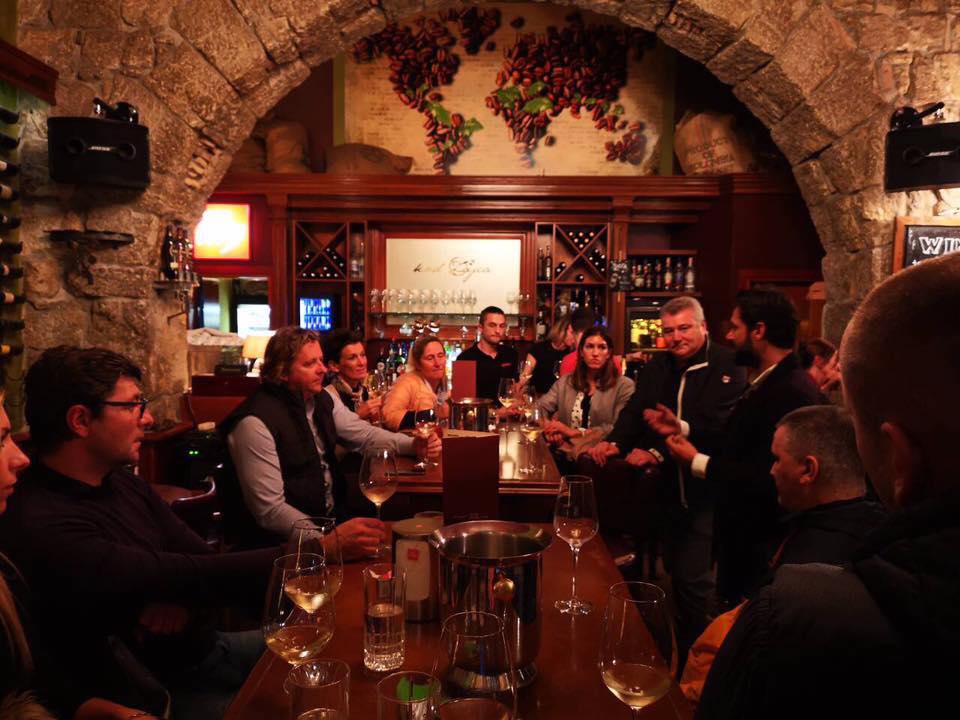
Kod Zajca
Here at Zajc, one of Rijeka's favorite cafe and wine bars, not only will you find an extensive wine list and friendly staff who will gladly help you choose from it, but there's also a great selection of craft beers and mixed drinks, plus a variety of delicious tapas dishes, to accompany whatever you're having. Zajc also offers regular wine presentations and tastings in a really nice, relaxed atmosphere, and in addition, there is occasional live music which is always a plus.
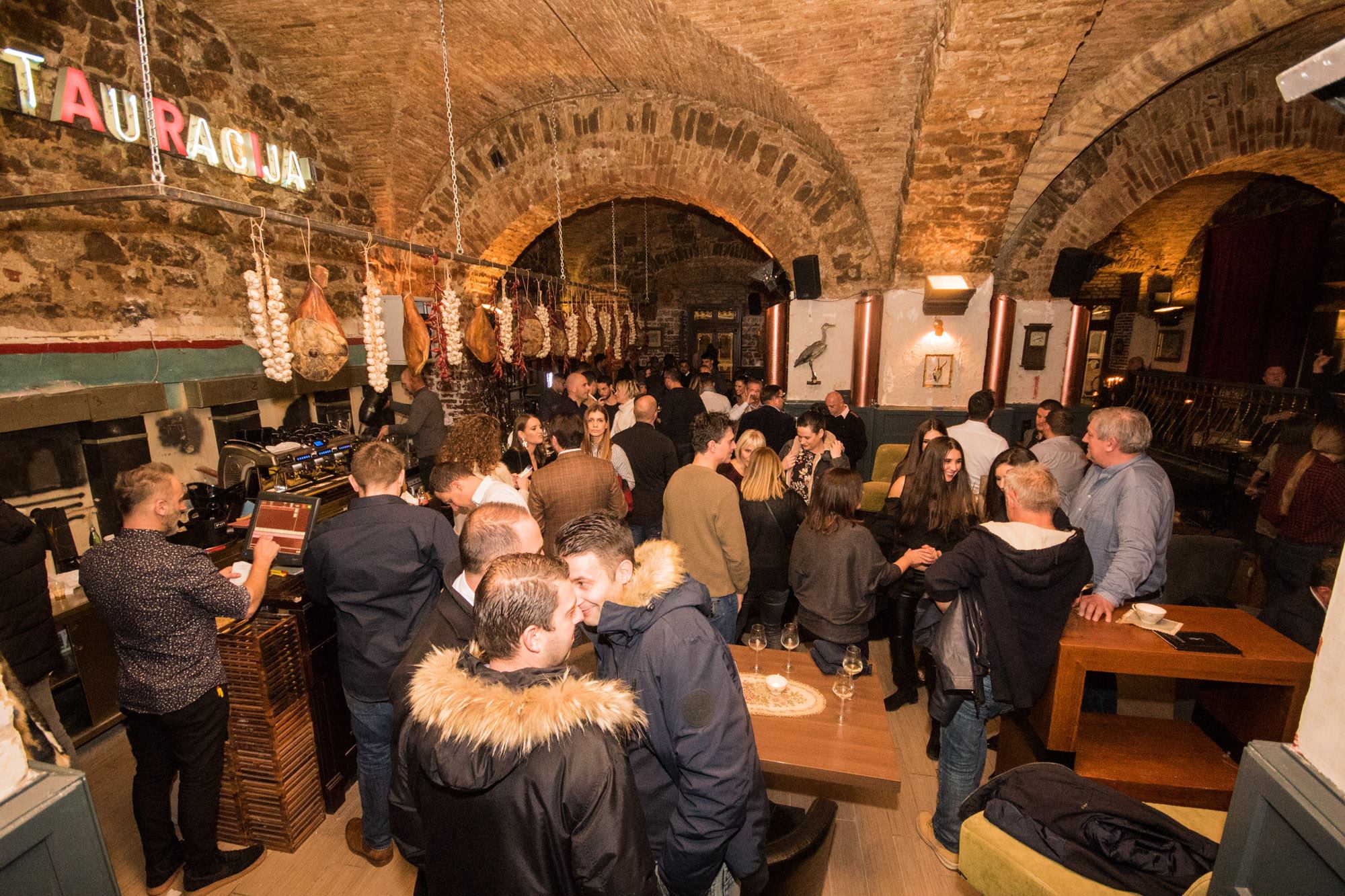
La Bodega
While a glass of wine on its own is always nice, when paired with an assorted charcuterie and cheese board with pickles, the experience can be exquisite. La Bodega offers exactly that and much more. Domestic and imported wines are available by the glass or bottle, but there's also an impressive list of cocktails and spirits to choose from, and the presentation of each dish is assembled with attention to detail.
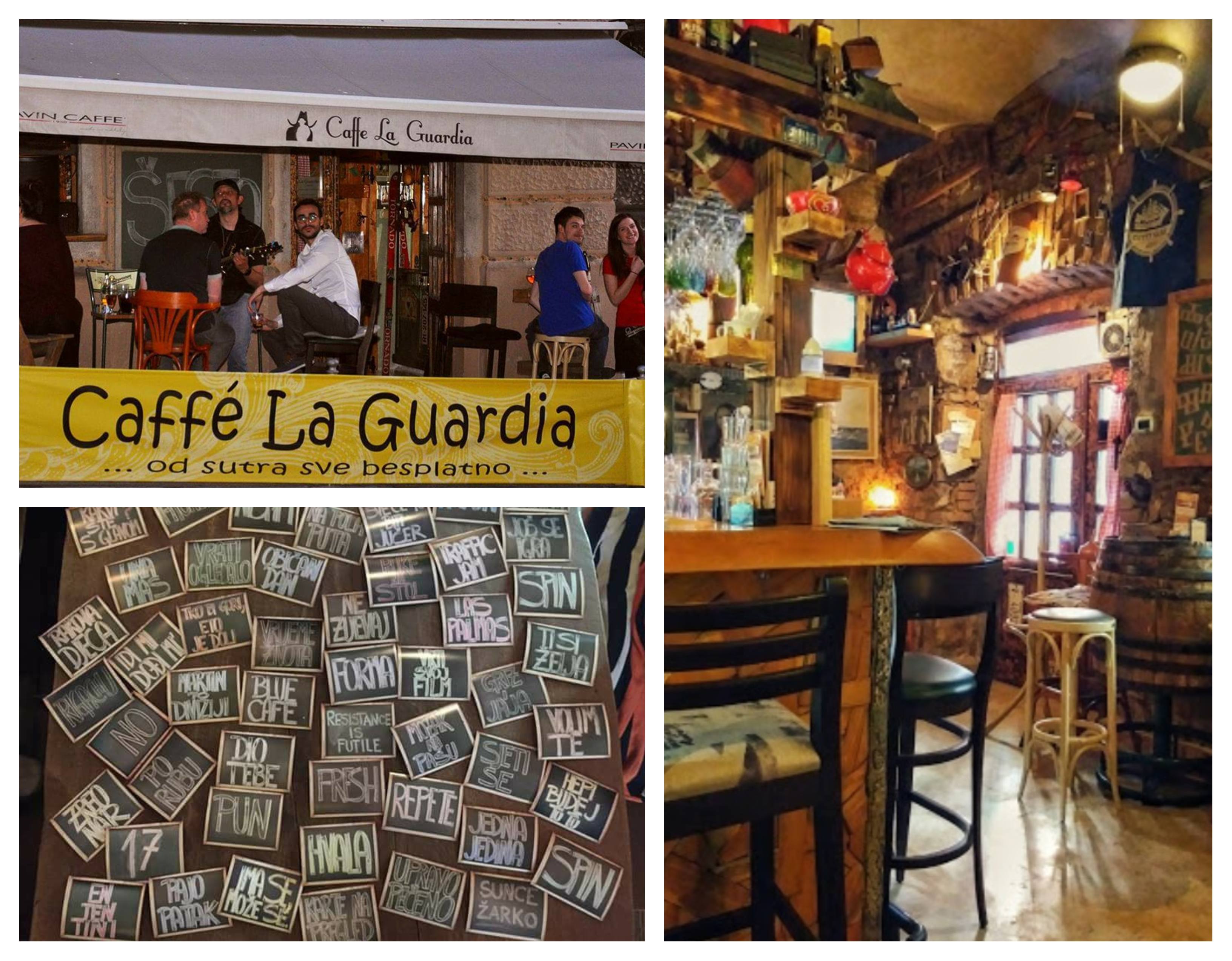
La Guardia
You will find this charming little café located on the eponymous street in a somewhat off-beat spot, but it's definitely worth a visit. During the day, La Guardia is the perfect choice if you want to relax over a cup of coffee in a cozy, laid-back atmosphere, whereas at night the place often offers live music and transforms into a cool bar with a divey vibe that beats overpriced nightclubs any day of the week. This quaint café where the locals gather to drink and socialize is decorated with all kinds of memorabilia which adds to its quirky character, and what people probably love the most about this place are the owner's daily thoughts, quotes, and scribbles written on a chalkboard hanging outside. And the best part is you can take home some of that La Guardia vibe: those messages du jour are made into souvenir magnets which are handed out at the cafe in exchange for a symbolic donation, and the entire profit goes for a good cause.
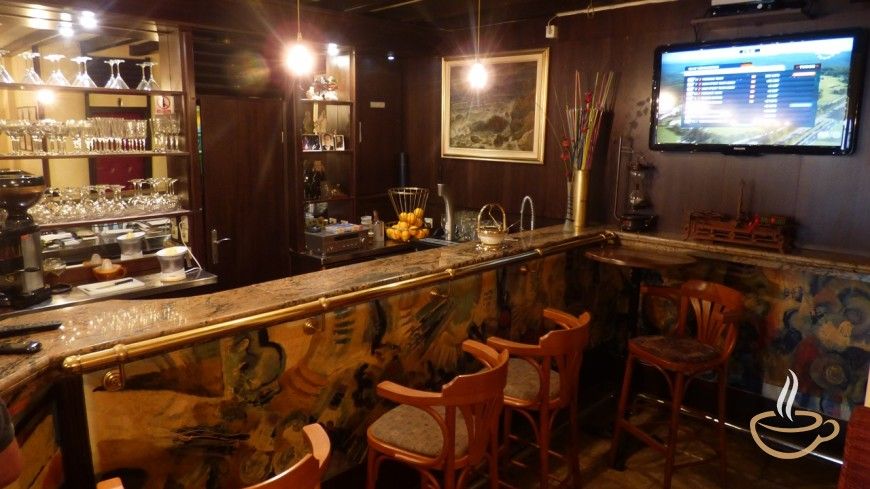
Premier Bar
Remember the American 1980s sitcom Cheers? Of course you do. Now I don't mean to indulge in nostalgia, but if Rijeka had its version of Cheers — Premier would be it. And it's not just the decor, it's much more than that: it's the people, the story, the vibe. Premier is the city's first privately owned café and has been operating for over 40 years. Since it closes at 10 PM, it probably won't be your best choice for a night out on the town, but it's more than suitable for the precedent warmup, or even daytime drinking, because why not? Also, "sometimes you want to go where everybody knows your name, and they're always glad you came."
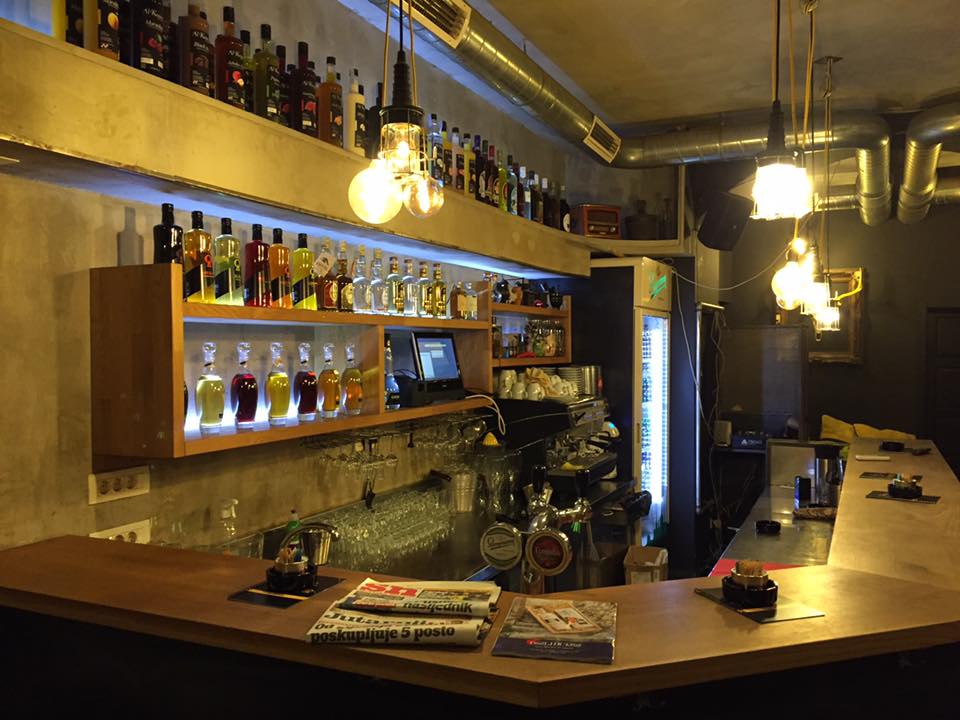
Rakhia Bar
The name says it all — Rakhia bar is the house of the "fire water that fuels the Balkans." So if you are out and about Rijeka looking for something to warm you up, this is one of the places you simply shouldn't miss visiting. Apart from an extensive selection of rakija and other spirits and liqueurs, the bar that started trending the hashtag #DajJošJednu (lit. GimmeAnotherOne) offers various music themed parties and tastings, including the so-called "rakhiada," a blind rakija tasting contest; and also occasional speed drinking contests for the bravest.
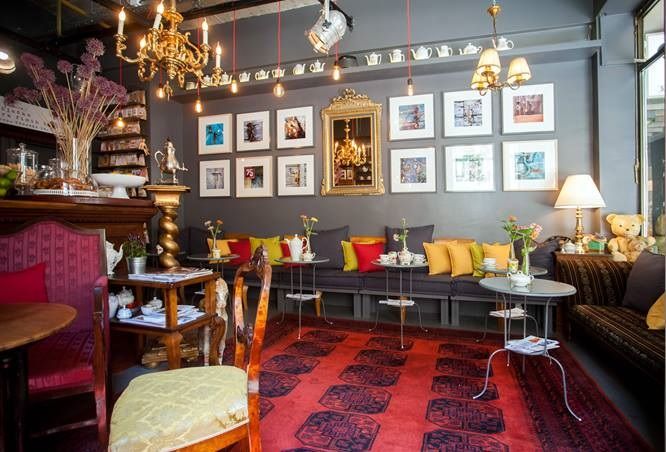
Samovar Bar
Fancy a cup o' tea? Look no further. Here at Samovar bar, you will find a carefully curated selection of more than 250 of world's finest teas and tisanes but also a number of interesting domestic blends like the Croatian Velebit mountain tea, the Kornati islands tea, the Sunny meadow wild herbal tea, etc. In addition, this dainty little tea shop offers great coffee -- seriously, it's hard to imagine how we could ever live without it -- and let's not forget wintertime classics like mulled wine and hot chocolate. Should I go on? Didn't think so.
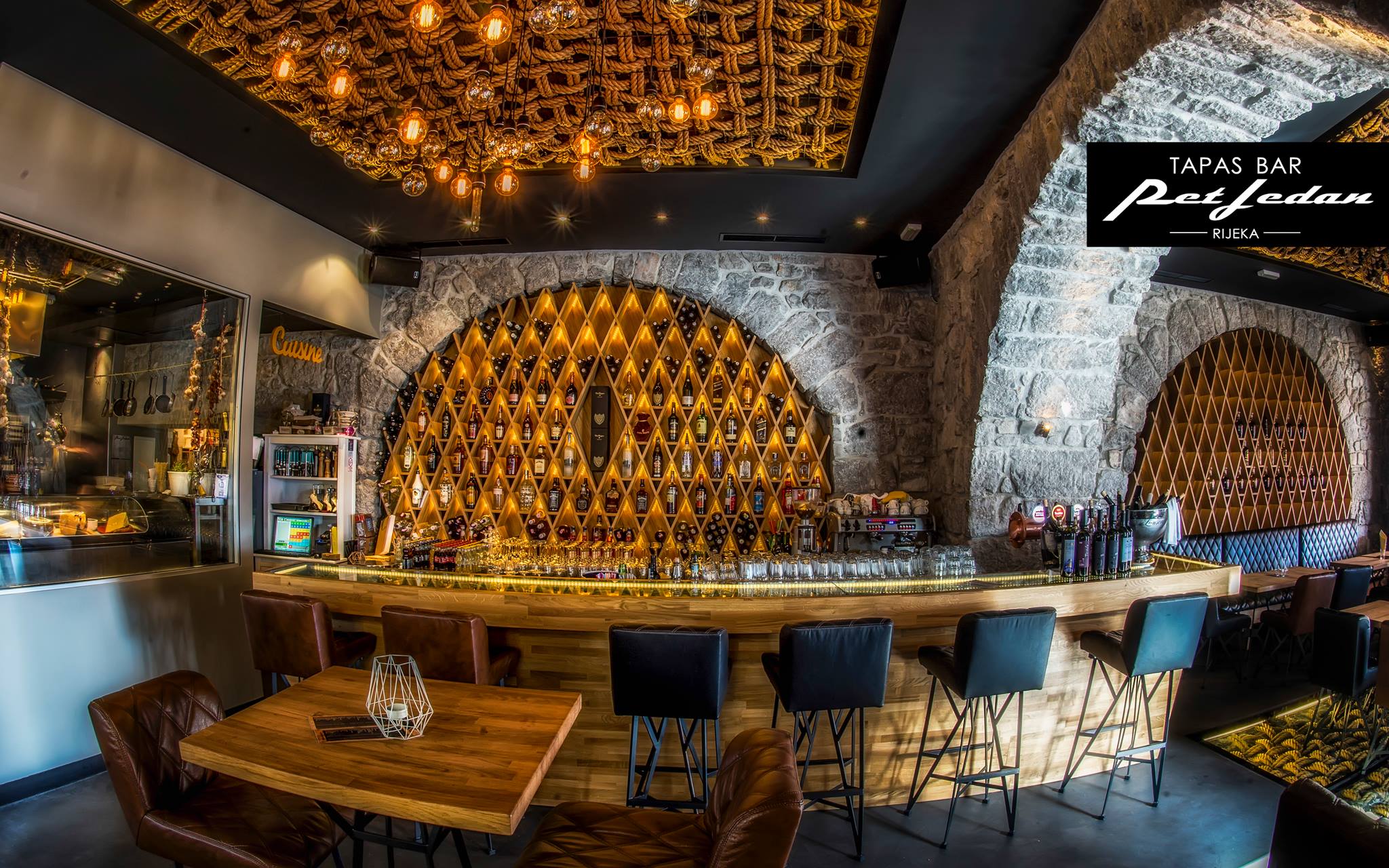
Tapas Bar Pet Jedan
Rijeka's favorite tapas bar, Pet Jedan is one of those places where you can indulge all your senses at once: eat, drink, and enjoy live background music in a cozy, intimate atmosphere. Whether you're craving breakfast, brunch, lunch or dinner — Pet Jedan has you covered. Apart from their versatile daily menus, every Tuesday, you can enjoy the Chefs' evening, a gourmet multi-course dinner accompanied by professionally selected wines, beers, and other complementary drinks. Pet Jedan is usually packed, but they do take reservations so don't shy away.
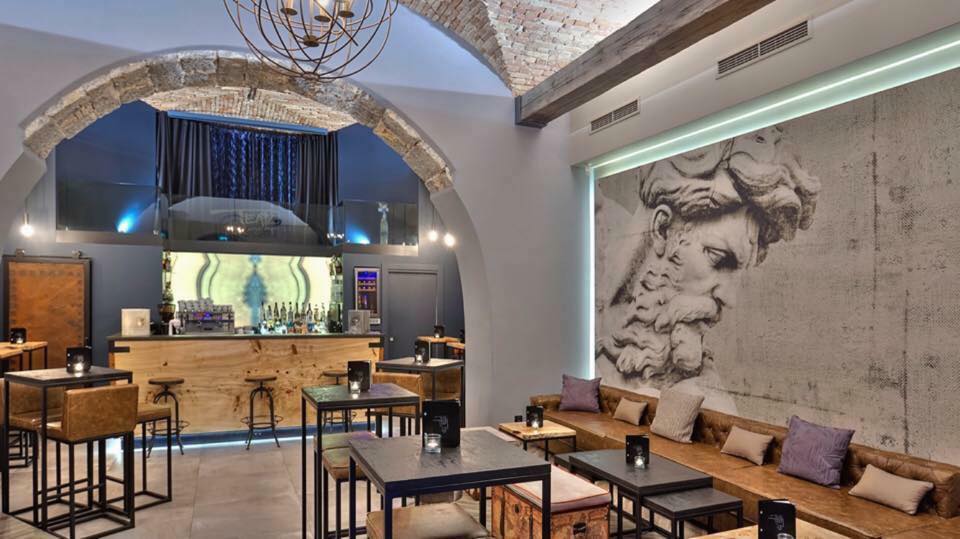
Teatro Lounge Bar
Hear ye, hear ye, Teatro is all the rage, life is a theatre and all the world's a stage! Did I just quote Shakespeare? Yes, kind of. But the sophisticated Teatro bar does have a certain theatrical vibe to it. This cozy place operates somewhere between a daytime coffee shop and an evening lounge bar, and it occasionally hosts various arts and entertainment events, but also DJ and after-work parties. Drinks selection? Just as versatile.

Three Monkeys
Caffe by day, cocktail bar by night — and a really good one at that. The Three Monkeys opened recently, in the very heart of downtown Rijeka. They are very serious about becoming the best cocktail bar in town, and they definitely got off to a good start. In addition to an impressive cocktail list and friendly, well-educated staff, this dimly-lit bar is tastefully decorated and has a really cozy feel to it, so once you stop by, you'll be definitely coming back for more.
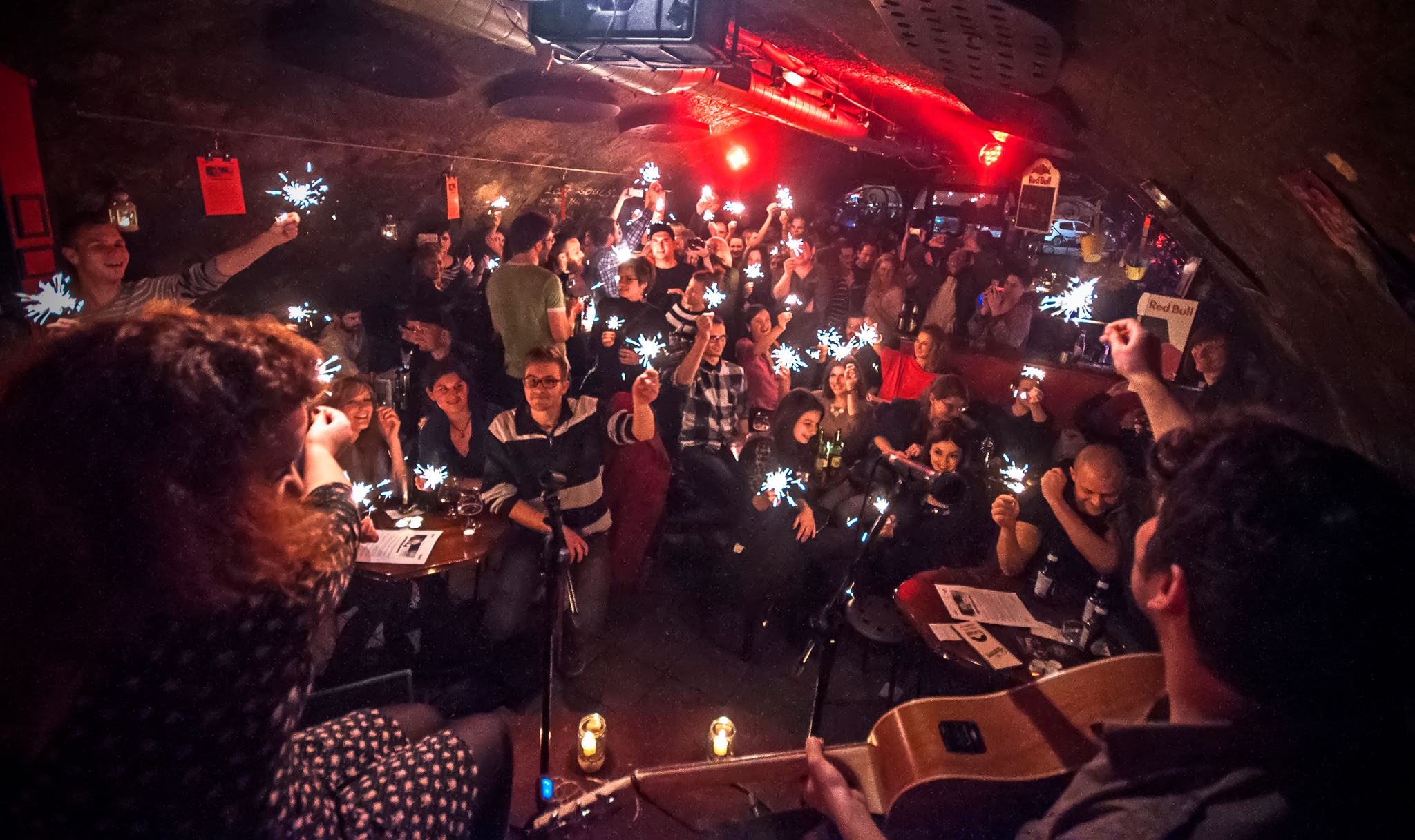
Tunel
Another must-visit place in downtown Rijeka. As you may have already guessed by its name, Tunel was once an actual railway tunnel. And according to their motto, "the light at the end of the tunnel is actually — music," though you will find much more in this unique cafe that doubles as a nightclub. During the day, stop by for some coffee, but comes nighttime, Tunel is your go-to place for great DJ parties, concerts, and various other performances, while a pretty decent selection of drinks is always a plus.
For more related topics, keep up with our lifestyle page.
Hrapoćuša Cake: “Brač’s Sweet Aphrodisiac”
Learn a little more about Brač's sweet aphrodisiac, a desert so special, it is even listed by Croatia's Ministry of Culture as protected intangible heritage.
Top Chefs Tour Dalmatia, Praise as a Foodie Destination
Early in Spring, Great British Chefs – Francesco Mazzei and Tom Aikens recently toured Dalmatia and had nothing but praises to sing about the gastronomy and their overall experience here.
Hvar Celebration of 150 Years of Tourism Opens With Spectacular Wine and Song Evening
Grand tasting of Hvar wines, with the hvar Winemakers' Association and Dino Petrić
Spectacular Gala Dinner with 3-Michelin Star Team at Martinis Marchi This Weekend!
This weekend, Saturday 21st April 2018, Martinis Marchi is hosting a spectacular Wine Tasting and Gala dinner, accompanied by 3 Michelin-Star chef Roberto Cerea and the Da Vittorio team! A night not to be missed by any gourmand.
Sailing in Croatia: Michelin Guide to Croatia’s Coastal Restaurants
On March 1st 2018, the Michelin Guide released their 2018 edition and the Croatian gastronomy scene has a lot to be excited about. Michelin awarded three restaurants a star and recommended 59 others; unsurprisingly, a lot of these restaurants are along the coast, so we have created a ‘Michelin Guide to Croatia’s Coastal Restaurants.’


